Curaçao Travel Restrictions
Traveler's COVID-19 vaccination status

Traveling from the United States to Curaçao
Open for vaccinated visitors
COVID-19 testing
Not required
Not required for vaccinated visitors
Restaurants
Not required in public spaces and public transportation.
Documents & Additional resources
Ready to travel, find flights to curaçao, find stays in curaçao, explore more countries on travel restrictions map, destinations you can travel to now, dominican republic, netherlands, philippines, puerto rico, switzerland, united arab emirates, united kingdom, know when to go.
Sign up for email alerts as countries begin to open - choose the destinations you're interested in so you're in the know.
Can I travel to Curaçao from the United States?
Most visitors from the United States, regardless of vaccination status, can enter Curaçao.
Can I travel to Curaçao if I am vaccinated?
Fully vaccinated visitors from the United States can enter Curaçao without restrictions.
Can I travel to Curaçao without being vaccinated?
Unvaccinated visitors from the United States can enter Curaçao without restrictions.
Do I need a COVID test to enter Curaçao?
Visitors from the United States are not required to present a negative COVID-19 PCR test or antigen result upon entering Curaçao.
Can I travel to Curaçao without quarantine?
Travelers from the United States are not required to quarantine.
Do I need to wear a mask in Curaçao?
Mask usage in Curaçao is not required in public spaces and public transportation.
Are the restaurants and bars open in Curaçao?
Restaurants in Curaçao are open. Bars in Curaçao are .
Security Alert May 17, 2024
Worldwide caution, update may 10, 2024, information for u.s. citizens in the middle east.
- Travel Advisories |
- Contact Us |
- MyTravelGov |
Find U.S. Embassies & Consulates
Travel.state.gov, congressional liaison, special issuance agency, u.s. passports, international travel, intercountry adoption, international parental child abduction, records and authentications, popular links, travel advisories, mytravelgov, stay connected, legal resources, legal information, info for u.s. law enforcement, replace or certify documents.
Before You Go
Learn About Your Destination
While Abroad
Emergencies
Share this page:
Travel Advisory July 17, 2023
Curaçao - level 1: exercise normal precautions.
Reissued with obsolete COVID-19 page links removed.
Exercise normal precautions in Curaçao.
Read the country information page for additional information on travel to Curaçao.
If you decide to travel to Curacao:
- Enroll in the Smart Traveler Enrollment Program (STEP) to receive Alerts and make it easier to locate you in an emergency.
- Follow the Department of State on Facebook and Twitter .
- Review the Country Security Report for Curacao.
- Prepare a contingency plan for emergency situations. Review the Traveler’s Checklist .
- Visit the CDC page for the latest Travel Health Information related to your travel.
Embassy Messages
View Alerts and Messages Archive
Quick Facts
Must be valid for period of stay. See here for more information on entry requirements.
One page required for entry stamp
Yellow fever if arriving from select countries .
Amounts exceeding USD 11,000 (or equivalent) must be declared
Embassies and Consulates
U.s. consulate general curaçao.
J.B. Gorsiraweg 1, Willemstad, Curaçao Telephone: +(599)(9) 461-3066 Emergency After-Hours Telephone: +(599)(9) 843-3066 (from Curaçao); +1-(503)-420-3115 (from the United States) Email: [email protected]
Destination Description
See the Department of State’s Fact Sheet on Curaçao for information on U.S. - Curaçao relations.
Entry, Exit and Visa Requirements
Upon arrival in Curaçao, you must have:
- a U.S. passport valid for the duration of your stay
- a completed Embarkation and Disembarkation Card (ED-Card) . You can complete the ED-Card on the airplane en route to Curaçao or in advance by using ED-Card Online .
- a return or onward ticket
- if requested, proof of sufficient funds to cover accommodations and food during your stay.
Minors traveling to and from Curacao must present a valid document, applicable in their country or origin, to prove that they are traveling with their lawful parents or has been granted permission for the purpose of the trip to travel with a designated accompanying adult. For example: birth certificate, authorization letter, legal custody document.
U.S. citizens are allowed to stay in Curaçao without a visa or permit for a maximum consecutive period of six months each calendar year. If you want to stay longer than 180 days, or if you want to work, you must apply for a residence permit. U.S. students planning to attend school in Curaçao must obtain a student visa before arrival. If you have already stayed in Curaçao six months and want to reenter the same year, you must apply for a “declaration of admission” upon arrival.
For further information, travelers may contact the Royal Netherlands Embassy or its consulates in the United States. Visit the website for the Island of Curaçao for the most current visa information.
HIV/AIDS Restrictions: The U.S. Department of State is unaware of any HIV/AIDS entry restrictions for visitors to or foreign residents of Curaçao.
Departure Fees: When departing Curaçao, airport departure fees are charged for international destinations. Most airlines include this fee in the ticket price. The most current information can be found on the airport’s website .
Find information on dual nationality , prevention of international child abduction and customs regulations on our websites.
Safety and Security
Crime: Crimes of opportunity are common, such as pickpocketing and purse snatching, particularly at beaches, hotel lobbies, or from cars. Be aware of your surroundings and take precautions to secure personal property. Car theft is an increasing problem. Do not leave valuables in cars in plain view or unattended in unsecured hotel rooms and rental homes. Parking lots that are unattended and without access control are considered higher risk for car break-ins. Some beaches charge a fee for access and employ private security, which provides some deterrent to crime.
Keep a copy of your valid U.S. passport in a secure location in case your passport is stolen.
Violent crime, including rape and armed robbery – although not common – does occur. Exercise caution when visiting more isolated areas of the island. Some thefts and assaults have been reported near nature areas, remote beaches, and small or informal parking areas used by divers.
If you are traveling with children, be aware that the legal drinking age of 18 is not always enforced, so extra parental supervision may be appropriate. Take standard precautions when frequenting nightclubs and bars. Travel in pairs or groups and, if you consume alcohol, do so responsibly.
See the Department of State and the FBI pages for information on scams.
Victims of Crime: Dial 911 for police assistance in Curaçao. Contact the U.S. Consulate at +(599)(9) 461-3066 after you have contacted local police. Remember that local authorities are responsible for investigating and prosecuting the crime.
Do not rely on hotels, restaurants, or tour companies to make the police report for you.
For more information, see our webpage on help for U.S. victims of crime overseas .
- help you find appropriate medical care
- assist you in reporting a crime to the police
- contact relatives or friends with your written consent
- provide general information regarding the victim’s role during the local investigation and following its conclusion
- provide a list of local attorneys
- provide information on victim’s compensation programs in the U.S.
- provide an emergency loan for repatriation to the United States and/or limited medical support in cases of destitution
- help you find accommodation and arrange flights home
- replace a stolen or lost passport
Domestic Violence: U.S. citizen victims of domestic violence are encouraged to contact the Embassy for assistance.
Tourism: The tourism industry is unevenly regulated, and safety inspections for equipment and facilities do not commonly occur. Hazardous areas/activities are not always identified with appropriate signage, and staff may not be trained or certified either by the host government or by recognized authorities in the field. In the event of an injury, appropriate medical treatment is typically available only in/near major cities. First responders are generally unable to access areas outside of major cities and to provide urgent medical treatment. U.S. citizens are encouraged to purchase medical evacuation insurance. See our webpage for more information on insurance providers for overseas coverage .
Local Laws & Special Circumstances
Criminal Penalties: You are subject to local laws. If you violate local laws, even unknowingly, you may be expelled, arrested, or imprisoned. Individuals establishing a business or practicing a profession that requires additional permits or licensing should seek information from the competent local authorities, prior to practicing or operating a business.
Furthermore, some laws are also prosecutable in the United States, regardless of local law. For examples, see our website on crimes against minors abroad and the Department of Justice website.
In Curaçao, laws against possession of controlled substances are enforced rigorously, including against tourists in possession of marijuana for personal use.
Arrest Notification: If you are arrested or detained, ask police or prison officials to notify the U.S. Consulate immediately. See our webpage for further information.
Local law is based on Dutch law, which allows for the detention of subjects during an investigation with the approval of a judge. Persons imprisoned in Curaçao do not have the option of posting bond for their release.
Dual Nationality: Dutch law, in principle, does not permit dual nationality. However, there are exceptions to this rule. For detailed information, contact the The Netherlands Embassy in Washington, DC, or one of the Dutch Consulates in the United States.
Counterfeit and Pirated Goods: Although counterfeit and pirated goods are prevalent in many countries, they may still be illegal according to local laws. You may also pay fines or have to give them up if you bring them back to the United States. See the U.S. Department of Justice website for more information.
Faith-Based Travelers: See the following webpages for detals:
- Faith-Based Travel Information
- International Religious Freedom Report – see country reports
- Human Rights Report – see country reports
- Hajj Fact Sheet for Travelers
- Best Practices for Volunteering Abroad
LGBTQI+ Travelers: There are no legal restrictions on same-sex sexual relations or the organization of LGBTQI+ events in Curaçao.
See our LGBTQI+ Travel Information page and section 6 of our Human Rights report for further details.
Travelers Who Require Accessibility Assistance: While in Curaçao, individuals with disabilities may find accessibility and accommodation very difficult than in the United States. Sidewalks and crossings in many areas are not wheelchair accessible, and many buildings lack ramps.
Students: See our Students Abroad page and FBI travel tips .
Women Travelers: See our travel tips for Women Travelers .
Access to quality medical care is limited in Curaçao, and facilities do not offer the health and service standards typically expected in the United States.
For emergency services in Curaçao, dial:
- Police: 911
- Ambulance/EMS: 912
- Fire Department: 911
- Coastal Guard: 913
Ambulance services are widely available.
Curaçao’s medical system emphasizes the use of “house doctors” or “huisarts,” outpatient primary care physicians who may not have completed postgraduate training such as a residency program. Some surgical specialties, e.g., neurosurgery and cardiac surgery, are not represented on the island.
St. Elisabeth Hospital (SEHOS) is the largest hospital in Curaçao with an extensive emergency room and the only intensive care unit on the island. Curaçao also has two private clinics, The Curacao Medical Center (CMC)
A list of medical facilities in Curaçao is available on our Consulate website. We do not endorse or recommend any specific medical provider or clinic. We do not pay medical bills. Be aware that U.S. Medicare does not apply overseas.
We do not pay medical bills. Be aware that U.S. Medicare/Medicaid does not apply overseas. Most hospitals and doctors overseas do not accept U.S. health insurance.
Medical Insurance: Make sure your health insurance plan provides coverage overseas. Most care providers overseas only accept cash payments. See our webpage for more information on insurance providers for overseas coverage . Visit the U.S. Centers for Disease Control and Prevention for more information on type of insurance you should consider before you travel overseas.
We strongly recommend supplemental insurance to cover medical evacuation. Critically ill patients requiring service not offered in Curaçao are normally transferred to Colombia at the patient’s expense. If medical evacuation is authorized by the patient’s insurance carrier or funded privately (approximately $15,000 – $25,000), patients can be transferred to the United States.
Medicines: If traveling with prescription medication, check with the Government of Curaçao to ensure the medication is legal in Curaçao. Always carry your prescription medication in original packaging with your doctor’s prescription.
The variety of drugs available locally is smaller than in the U.S. To find out which local pharmacy is open after hours, you can call (+599)(9)737-7404 or check with your hotel.
Vaccinations: Be up-to-date on all vaccinations recommended by the U.S. Centers for Disease Control and Prevention.
The following diseases are prevalent:
- Chikungunya
Use the U.S. Centers for Disease Control and Prevention recommended mosquito repellents and sleep under insecticide-impregnated mosquito nets. Chemoprophylaxis is recommended for all travelers even for short stays.
Visit the U.S. Centers for Disease Control and Prevention website for more information about Resources for Travelers regarding specific issues in Curaçao.
Further health information:
- World Health Organization
- U.S. Centers for Disease Control and Prevention (CDC)
Air Quality: Visit AirNow Department of State for information on air quality at U.S. Embassies and Consulates.
Travel and Transportation
Road Conditions and Safety: Take extra caution when driving in Curaçao. Proceed through intersections with caution as traffic signs are often hidden or nonexistent. Roads are extremely slippery when it rains. Look out for scooters, motorcycles, and ATVs, as drivers of these vehicles may not strictly follow traffic rules. Be alert for speeding cars and drunk drivers. In rural areas, watch out for goats and other animals that cross the road unexpectedly. Night driving is reasonably safe, as long as drivers are familiar with the route and road conditions. Roads are not as well-lit as in the United States. Driving while intoxicated may result in the loss of a driver’s license, fine, and imprisonment.
Traffic Laws: Vehicles operate on the right-hand side in Curaçao. You can drive in Curaçao with a valid U.S. driver’s license. Right turns at red lights are prohibited. Traffic signs prohibiting actions have a red circle around them, but not the red slash you expect to see in the United States. Local laws require drivers and passengers to wear seat belts, and motorcyclists to wear helmets. Children must ride in the back seat, and children under 5 years of age must be in a child safety seat.
At intersections and traffic circles, yield to traffic coming from your right unless signs indicate otherwise. Right turns at red lights are prohibited. U-turns are often restricted. Traffic signs prohibiting actions have a red circle around them, but not the red slash you expect to see in the United States. At all T-crossings, through traffic has priority.
If you get into an accident, do not move the vehicle or pull over. Call your rental agency and call Curaçao Road Services at 199. You may be required to file a police report.
In case of car trouble, call Roadside Assistance 24/7 Curaçao at 9-24-7.
Public Transportation: Public transportation is limited. There are two bus terminals, one in Punda near the post office at the Waaigat and another in Otrobanda near the overpass. Large buses (called ‘Konvooi’) travel limited, longer-distance routes, typically once per hour. Mini-vans and mini-buses bearing the word “BUS” on their registration plates travel shorter routes on main roads. They are inexpensive and run non-stop during the daytime with no fixed schedule. Each minibus has a specific route that is displayed on the front windshield. Taxis are expensive, but generally safe and well-regulated. There are no meters, so passengers should determine the price in advance.
See our Road Safety page for more information. Visit the website of Curaçao’s Tourism Board for more information about transportation.
Watersports Advisory: You should carefully assess the potential risks inherent in recreational water activities and measure your participation in them against your physical capabilities and skills. Never venture out alone, particularly at isolated beaches or far out to sea. Avoid entering the water above your waist if you have been drinking and always be mindful of watercraft traffic in the area. When in doubt, stay out!
Cliff Jumping and Diving Advisory: Carefully consider the potential risks inherent in cliff jumping and cliff diving. Individuals have suffered serious injuries from engaging in these activities in Curaçao.
Aviation Safety Oversight: As there is no direct commercial air service to the United States by carriers registered in Curaçao, the U.S. Federal Aviation Administration (FAA) has not assessed the government of Curaçao’s civil aviation authority for compliance with International Civil Aviation Organization aviation safety standards. Further information may be found on the FAA’s safety assessment page
Maritime Travel: Mariners planning travel to Curaçao must have completed a Customs Form 1300, Vessel Entrance or Clearance Statement declaring their intention to travel to Curaçao prior to their departure from the U.S. port. Mariners failing to fill out and submit this form will be denied entry to Curaçao’s ports. Mariners planning travel to Curaçao should also check for U.S. maritime advisories and alerts . Information may also be posted to the U.S. Coast Guard homeport website , and the NGA broadcast warnings .
For additional travel information
- Enroll in the Smart Traveler Enrollment Program (STEP) to receive security messages and make it easier to locate you in an emergency.
- Call us in Washington, D.C. at 1-888-407-4747 (toll-free in the United States and Canada) or 1-202-501-4444 (from all other countries) from 8:00 a.m. to 8:00 p.m., Eastern Standard Time, Monday through Friday (except U.S. federal holidays).
- See the State Department’s travel website for the Worldwide Caution and Travel Advisories .
- Follow us on Twitter and Facebook .
- See traveling safely abroad for useful travel tips.
Review information about International Parental Child Abduction in Curaçao . For additional IPCA-related information, please see the International Child Abduction Prevention and Return Act ( ICAPRA ) report.
Travel Advisory Levels
Assistance for u.s. citizens, curaçao map, learn about your destination, enroll in step.

Subscribe to get up-to-date safety and security information and help us reach you in an emergency abroad.
Recommended Web Browsers: Microsoft Edge or Google Chrome.
Make two copies of all of your travel documents in case of emergency, and leave one with a trusted friend or relative.
Afghanistan
Antigua and Barbuda
Bonaire, Sint Eustatius, and Saba
Bosnia and Herzegovina
British Virgin Islands
Burkina Faso
Burma (Myanmar)
Cayman Islands
Central African Republic
Cote d Ivoire
Curaçao
Czech Republic
Democratic Republic of the Congo
Dominican Republic
El Salvador
Equatorial Guinea
Eswatini (Swaziland)
Falkland Islands
France (includes Monaco)
French Guiana
French Polynesia
French West Indies
Guadeloupe, Martinique, Saint Martin, and Saint Barthélemy (French West Indies)
Guinea-Bissau
Isle of Man
Israel, The West Bank and Gaza
Liechtenstein
Marshall Islands
Netherlands
New Caledonia
New Zealand
North Korea (Democratic People's Republic of Korea)
Papua New Guinea
Philippines
Republic of North Macedonia
Republic of the Congo
Saint Kitts and Nevis
Saint Lucia
Saint Vincent and the Grenadines
Sao Tome and Principe
Saudi Arabia
Sierra Leone
Sint Maarten
Solomon Islands
South Africa
South Korea
South Sudan
Switzerland
The Bahamas
Timor-Leste
Trinidad and Tobago
Turkmenistan
Turks and Caicos Islands
United Arab Emirates
United Kingdom
Vatican City (Holy See)
External Link
You are about to leave travel.state.gov for an external website that is not maintained by the U.S. Department of State.
Links to external websites are provided as a convenience and should not be construed as an endorsement by the U.S. Department of State of the views or products contained therein. If you wish to remain on travel.state.gov, click the "cancel" message.
You are about to visit:

Curaçao Travel: A Guide For 2022
There are many picture-perfect places in the Caribbeans , but Curaçao (which is now open to foreign visitors) stands out as one of the region’s most alluring destinations. Known for its rich heritage, brightly painted colonial architecture, and exciting culinary scene, it offers an island escape with a difference.
Planning a trip to Curaçao in 2022 and looking for travel recommendations? Check out my travel tips below:
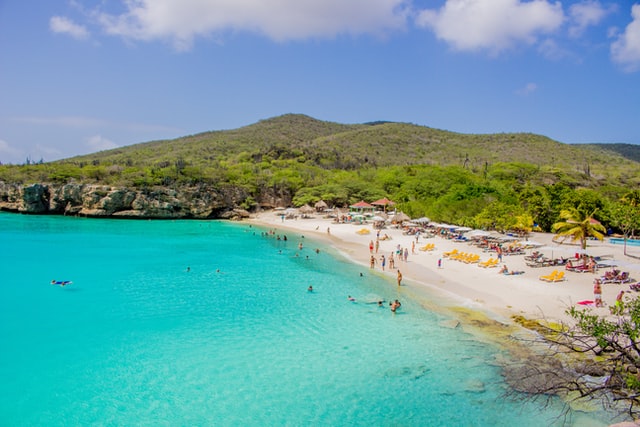
Top activities in Curaçao
History and culture.
Visit historic Willemstad to admire the Handelskade. A vibrant reminder of Curaçao’s Dutch heritage this stretch of painted buildings line the waterfront of St Anna Bay and have become one of the most photographed places on the island.
Take a walk across the iconic Queen Emma floating bridge . Known as the “Swinging Old Lady”, this floating pedestrian bridge connects Willemstad’s two halves, Punda and Otrobandawhich, and passes many UNESCO World Heritage sites, such as the Rif Fort.
Art lovers should check out the street art and open-air galleries in the vibrant colonial neighbourhoods of Otrobanda and Scharloo . Here you’ll also find a number of artist initiatives designed to engage the local communities in preserving their neighbourhoods.
Outdoor adventures
There’s a whale of a time to be had in Curaçao’s underwater world. Known as one of the best scuba diving spots in the world , its crystal-clear blue waters, natural coral reefs, shipwrecks, and caves make it suited to all dive abilities. And with over 60 dive sites and more than 30 beaches, you won’t be short of opportunities to explore the island’s coastal environments.
If really wild activities are your bag, head to Shete Boka National Park which lies on the far north coast of Curaçao . Known locally as Shete Boka (meaning “Seven Inlets”) its rugged terrain of rock and coral terraces hints as to the volcanic origins of the island.
View this post on Instagram A post shared by Curaçao (@curacao)
Where to stay on Curaçao
In general, when choosing where to stay on Curaçao it’s a good idea to look at the amenities and activities you think you’ll need during your stay and book something that has everything you need within easy reach . The island has lots of scenic enclaves so wherever you choose to stay, book a rental car to make the most of the opportunity to see the island.
There’s very little in the way of beaches and family-friendly activities on the island’s east coast, but if you love hiking, this is the place to be !
Avoid the south, unless you’re booking a resort stay , as the beaches here are generally man-made or for resort guests only.
Best self catered stays on Curaçao
Choose a hosted stay or book a self-catered apartment in historic Willemstad (the capital of Curaçao) to soak up the island’s rich colonial culture. The city is spread out over much of the south, but the architecture and panoramic ocean views of the Pietermaai neighbourhood make it an ideal choice for an urban island stay.
To experience the best of Curaçao’s nightlife, book a self-catered stay on Mambo beach. Here there is no shortage of lively locations for dining, cocktails, and entertainment.
Best beach resort stays on Curaçao
If you prefer to relax at a resort, take note of the latest Curaçao resort . Sandals Royal Curaçao opens in April 2022. Enclaved on 3000 acres, Royal Curaçao is a romantic paradise with 350 rooms and suites.
The resort also has the first Awa Seaside Bungalow and if you want to take pool photos for your Instagram, then opt for one of the Kurason Island suites overlooking a heart-shaped pool and the DOS Awa 2-level infinity pool. The island’s first-ever floating restaurant this Sandals resort has 12 all-new dining concepts and three new food trucks.
It is a perfect getaway for a luxurious and romantic stay while exploring Curaçao.
READ MORE CARIBBEAN TRAVEL GUIDES FROM WANDERLUSTERS
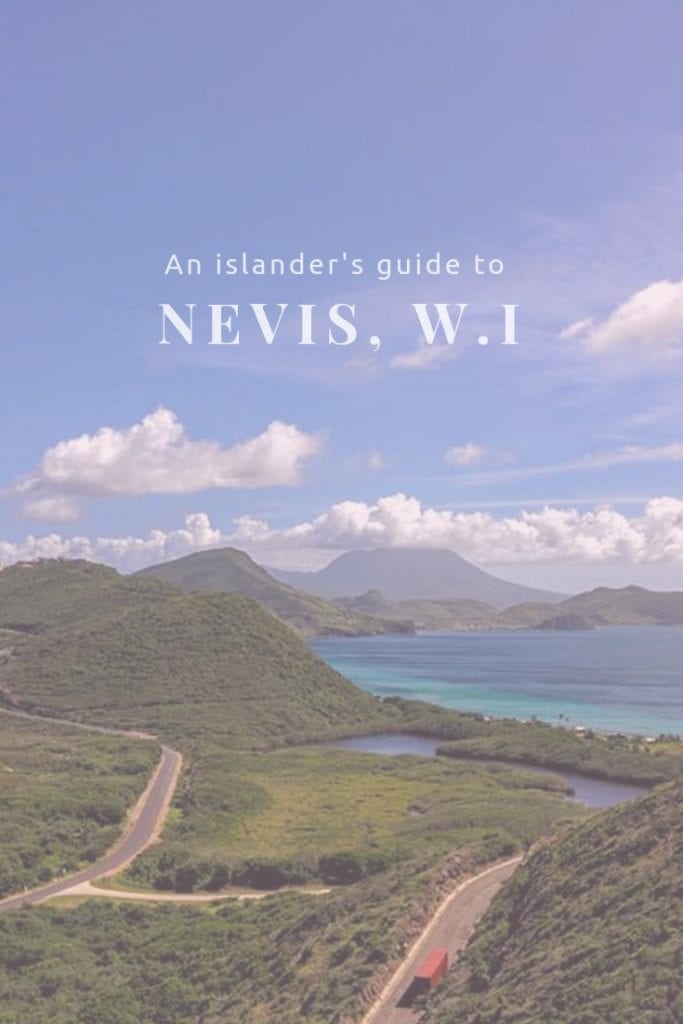
Do you have to quarantine when flying to Curaçao?
The Curaçao Tourist Board, the Ministry of Public Health, Environment and Nature, and other government agencies have firmly committed to a safe and controlled reopening for travel in 2022.
Here’s what you need to know if you’re planning to visit:
- Fourteen-day isolations are mandatory for those in contact with Covid patients.
- You will need to arrive with proof that you are not carrying the COVID virus. EU countries can now use the EU Digital Corona Certificate (EU DCC) as proof of testing and vaccination for Curaçao’s entry policy.
- If you are connecting through an international airport, be sure to adhere to the respective country’s travel regulations.
- Make sure your travel insurance offers enough coverage for medical care abroad and understand whether there are any limitations on cover for Coronavirus.
IMPORTANT – These guidelines are subject to change, so please check the Curaçao Travel advisory for up to date information before you travel.
What COVID restrictions are in place for travel to Curaçao?
As of Sep 13, authorities in Curaçao require all visitors to take a pre-travel test within 48 hours of departure. All travellers entering the island are required to have medical insurance to cover their trips. They must also carry printed or digital proof of their negative pre-travel test.
Local COVID measures
There is a strict curfew from 00.01-4.30, during which only people working in essential service are allowed outside their house.
Public gatherings must not exceed 100 people
Businesses must close at least one hour before the curfew. Additionally, everyone must wear a protective facemask indoors and when using public transportation.
It is very important to abide by all restrictions and national health and safety measures. Before you travel to Curaçao, reconfirm your travel and accommodation arrangements.
Curaçao travel sources for up to date information
gov.uk travel advice. for Curaçao
COVID 19 negative PCR test upload form for travel to Curaçao
Travel updates from the Curaçao Government

- Caribbean Travel Advisor
- Advertising
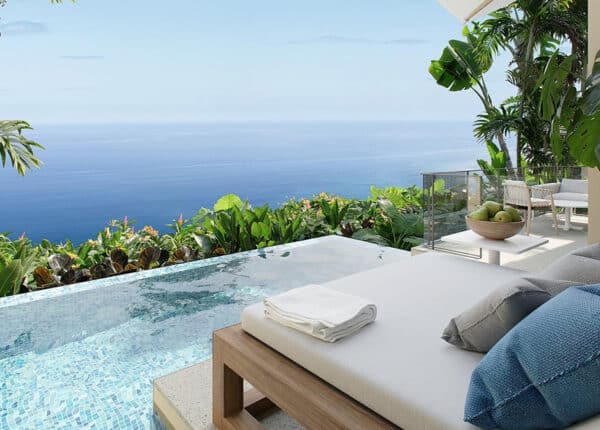
WestJet Is Launching Nonstop Flights to Grenada
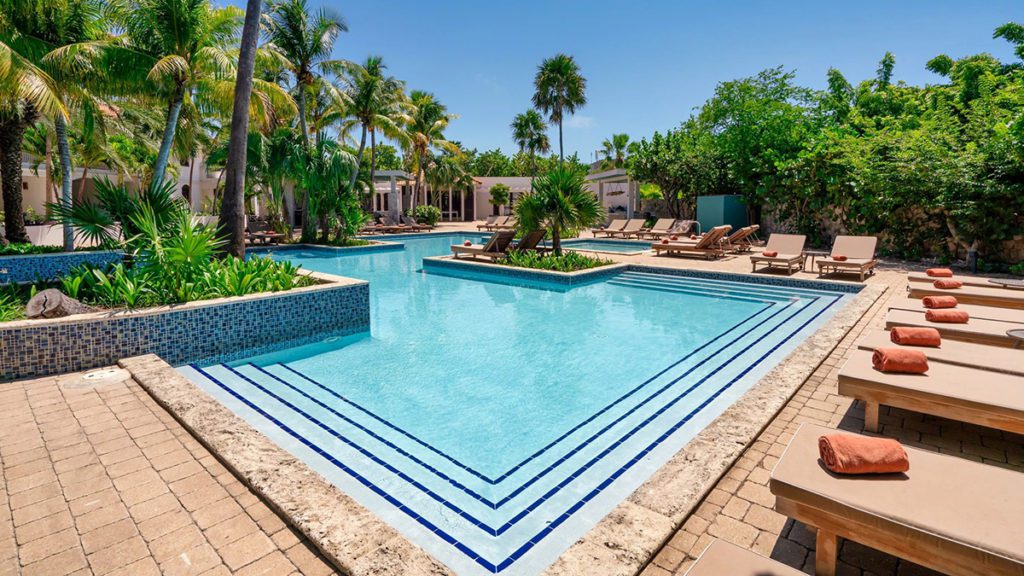
What to Know About Traveling to Curaçao Right Now
Curaçao recently updated its travel protocols for American and other “high-risk country” visitors, headlined by the requirement fo a negative PCR test result taken within 48 hours before flying to the island (the island requires a printed or digital copy of the result).
All visitors to the Dutch Caribbean island must also complete a digital immigration card ( you can find it here ), along with a Passenger Locator Card.
Every visitor must also undergo an antigen test at a local laboratory on-island on the third day of their trip.
Children under 12 who don’t show symptoms of Covid do not need to undergo a test.
The rules took effect this January.
For more, visit Curacao Tourism .
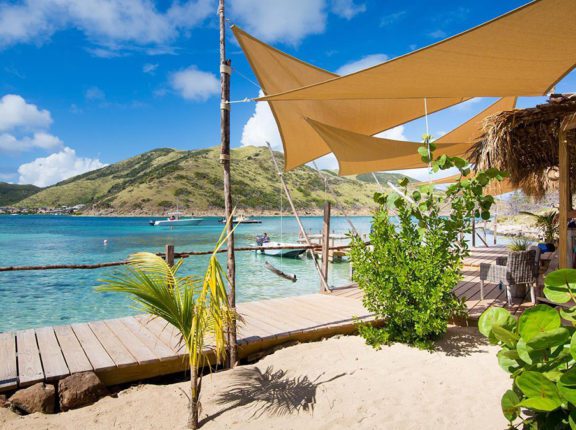
From Belize to Grenada, 10 Little Caribbean Beach Resorts to Visit Right Now
There are different resorts for different vacations, different tastes, different moods. For some, there’s something delicious about a pint-sized, tiny Caribbean resort, where the emphasis is on the intimate, the serene. Where the soundtrack isn’t a piped-in DJ set, but […]
Marriott Is Opening Its New St Regis Resort In Aruba

It was more than a decade ago that Marriott opened its first-ever Ritz-Carlton resort in the Dutch Caribbean: the Ritz-Carlton, Aruba, which at the time was the island’s first true five-star resort. Fast forward to 2024, and Marriott is set […]
Curacao Travel Is Booming, With More Hotels, Added Flights and a New Energy
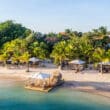
The colorful streets of Willemstad; the floating bridge; the all-day party at Mambo Beach; the endless possibilities at Jan Thiel. Curacao has always been one of the most diverse places to visit in the region. Now, travelers have finally started […]
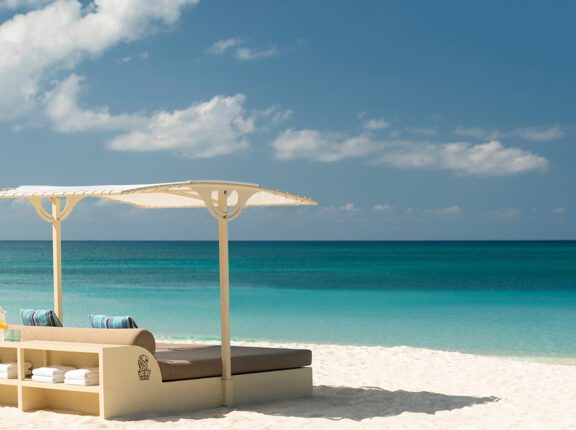
How to Attend Eric Ripert's Legendary Cayman Cookout
It’s one of the most legendary culinary events, well, anywhere in the world: Cayman Cookout, Chef Eric Ripert’s gastronomic festival at the Ritz-Carlton, Grand Cayman. And it’s back again this winter for what will be its 16th annual event. The […]
Travel Leaders President John Lovell Talks Caribbean Tourism

Internova Travel Group’s Travel Leaders Group has a massive footprint in the travel industry, generating gross travel sales of almost $21 billion every year, through its consortia, host agency and its specialty agencies in everything from cruise to leisure. That […]
How to Fly to the Perfect Caribbean Beach
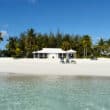
When it comes to the perfect beach, you know it when you see it. The brightness of the sand, the brilliance of the blue, that perfect permutation of palm trees dotting the shore. We’ve been to more Caribbean beaches than […]
Sign up for Caribbean Journal's free newsletter for a daily dose of beaches, hotels, rum and the best Caribbean travel information on the net.
- Skip to main content
- Skip to "About this site"
Language selection
Search travel.gc.ca.
Help us to improve our website. Take our survey !
COVID-19: travel health notice for all travellers
Curaçao travel advice
Latest updates: Editorial change
Last updated: June 7, 2024 11:35 ET
On this page
Safety and security, entry and exit requirements, laws and culture, natural disasters and climate, curaçao - take normal security precautions.
Take normal security precautions in Curaçao
Back to top
Petty crime
Petty crime, such as pickpocketing and purse snatching occurs in Curaçao.
Residential break-ins and theft from vehicles, hotel rooms and rental units also take place.
Crime typically increases during annual celebrations such as Carnival, which takes place from January to March.
- Ensure that your personal belongings, including your passport and other travel documents, are secure at all times
- Never leave valuables such as jewellery, cell phones, electronics, wallets or bags unattended on the beach or in your vehicle
Violent crime
Violent crime, such as homicide, armed robbery, home invasion and sexual assault, occurs although the number of incidents remains low.
- Avoid unpopulated areas or unpatrolled beaches after dark
- Check with local authorities to determine which beaches are safe
- Stay in accommodations with good security, and keep your doors and windows locked
Women's safety
Women travelling alone may be subject to some forms of harassment and verbal abuse.
Advice for women travellers
Water activities
Coastal waters can be dangerous. Rescue services may not be consistent with international standards.
Follow the instructions and warnings of local authorities.
If you are planning to take part in water sports such as scuba diving, jetskiing or parasailing:
- ensure that equipment is safe and in good condition
- ensure helmets and life jackets are available
- avoid participating in any water activities when you are under the influence of alcohol or other substances
- check that your travel insurance covers accidents related to recreational activities
Water safety abroad
Wildlife viewing
Wildlife viewing poses risks, particularly on foot or at close range.
- Always maintain a safe distance when observing wildlife
- Only exit a vehicle when a professional guide or warden says it’s safe to do so
- Only use reputable and professional guides or tour operators
- Closely follow park regulations and wardens’ advice
Road safety
Major roads are in good condition, but many drivers don’t respect traffic laws.
Animals on the road pose a hazard.
Road signs are different from Canada. Familiarize yourself with the signs before driving.
Public transportation
Minibuses run frequently throughout the day, though they have no fixed schedule. Each minibus has a specific route, which is displayed in its front windshield.
Limited government-run buses operate on fixed routes, generally running on the hour throughout the day.
Taxis in Curaçao must be registered. They are discernable by the “TX” marking on the license plate.
They are not metered. Drivers may have rate sheets available for different destinations. Agree on a fare prior to departure.
We do not make assessments on the compliance of foreign domestic airlines with international safety standards.
Information about foreign domestic airlines
Every country or territory decides who can enter or exit through its borders. The Government of Canada cannot intervene on your behalf if you do not meet your destination’s entry or exit requirements.
We have obtained the information on this page from Dutch authorities. It can, however, change at any time.
Verify this information with the Foreign Representatives in Canada .
Entry requirements vary depending on the type of passport you use for travel.
Before you travel, check with your transportation company about passport requirements. Its rules on passport validity may be more stringent than the country’s entry rules.
Regular Canadian passport
Your passport must be valid for at least 6 months after the date you expect to leave Curaçao.
Passport for official travel
Different entry rules may apply.
Official travel
Passport with “X” gender identifier
While the Government of Canada issues passports with an “X” gender identifier, it cannot guarantee your entry or transit through other countries. You might face entry restrictions in countries that do not recognize the “X” gender identifier. Before you leave, check with the closest foreign representative for your destination.
Other travel documents
Different entry rules may apply when travelling with a temporary passport or an emergency travel document. Before you leave, check with the closest foreign representative for your destination.
Useful links
- Foreign Representatives in Canada
- Canadian passports
Tourist visa: not required for stays of up to 30 days Business visa: not required Work permit: required Student visa: required
Other requirements
Customs officials may ask you to show them a return or onward ticket and proof of sufficient funds to cover your stay.
You must have a completely filled-in and signed Embarkation and Disembarkation card (ED-card) to enter Curaçao. It can be completed online, upon booking your travel.
- ED-card Curaçao
- More about entry requirements - The Netherlands and you
- Children and travel
Curaçao has strict requirements for the entry and exit of persons under the age of 18, including special documentation.
Children entering Curaçao must present:
- birth certificate, identity documents, as well as travel documents
- identity document(s) of the parent(s) or guardian, having authority to give consent to travel
- documents proving who is the legal representative of the traveling minor
- fully completed consent form, signed by the parent(s) travelling, designating the accompanying adult during the stay
- Consent Form – Government of Curaçao
- Foreign minors traveling - Government of Curaçao
- Travelling with children
Yellow fever
Learn about potential entry requirements related to yellow fever (vaccines section).
Relevant Travel Health Notices
- Global Measles Notice - 13 March, 2024
- COVID-19 and International Travel - 13 March, 2024
- Zika virus: Advice for travellers - 31 August, 2023
- Dengue: Advice for travellers - 6 May, 2024
This section contains information on possible health risks and restrictions regularly found or ongoing in the destination. Follow this advice to lower your risk of becoming ill while travelling. Not all risks are listed below.
Consult a health care professional or visit a travel health clinic preferably 6 weeks before you travel to get personalized health advice and recommendations.
Routine vaccines
Be sure that your routine vaccinations , as per your province or territory , are up-to-date before travelling, regardless of your destination.
Some of these vaccinations include measles-mumps-rubella (MMR), diphtheria, tetanus, pertussis, polio, varicella (chickenpox), influenza and others.
Pre-travel vaccines and medications
You may be at risk for preventable diseases while travelling in this destination. Talk to a travel health professional about which medications or vaccines may be right for you, based on your destination and itinerary.
Yellow fever is a disease caused by a flavivirus from the bite of an infected mosquito.
Travellers get vaccinated either because it is required to enter a country or because it is recommended for their protection.
- There is no risk of yellow fever in this country.
Country Entry Requirement*
- Proof of vaccination is required if you are coming from or have transited through an airport of a country where yellow fever occurs.
Recommendation
- Vaccination is not recommended.
- Discuss travel plans, activities, and destinations with a health care professional.
- Contact a designated Yellow Fever Vaccination Centre well in advance of your trip to arrange for vaccination.
About Yellow Fever
Yellow Fever Vaccination Centres in Canada * It is important to note that country entry requirements may not reflect your risk of yellow fever at your destination. It is recommended that you contact the nearest diplomatic or consular office of the destination(s) you will be visiting to verify any additional entry requirements.
There is a risk of hepatitis A in this destination. It is a disease of the liver. People can get hepatitis A if they ingest contaminated food or water, eat foods prepared by an infectious person, or if they have close physical contact (such as oral-anal sex) with an infectious person, although casual contact among people does not spread the virus.
Practise safe food and water precautions and wash your hands often. Vaccination is recommended for all travellers to areas where hepatitis A is present.
Measles is a highly contagious viral disease. It can spread quickly from person to person by direct contact and through droplets in the air.
Anyone who is not protected against measles is at risk of being infected with it when travelling internationally.
Regardless of where you are going, talk to a health care professional before travelling to make sure you are fully protected against measles.
Hepatitis B is a risk in every destination. It is a viral liver disease that is easily transmitted from one person to another through exposure to blood and body fluids containing the hepatitis B virus. Travellers who may be exposed to blood or other bodily fluids (e.g., through sexual contact, medical treatment, sharing needles, tattooing, acupuncture or occupational exposure) are at higher risk of getting hepatitis B.
Hepatitis B vaccination is recommended for all travellers. Prevent hepatitis B infection by practicing safe sex, only using new and sterile drug equipment, and only getting tattoos and piercings in settings that follow public health regulations and standards.
Coronavirus disease (COVID-19) is an infectious viral disease. It can spread from person to person by direct contact and through droplets in the air.
It is recommended that all eligible travellers complete a COVID-19 vaccine series along with any additional recommended doses in Canada before travelling. Evidence shows that vaccines are very effective at preventing severe illness, hospitalization and death from COVID-19. While vaccination provides better protection against serious illness, you may still be at risk of infection from the virus that causes COVID-19. Anyone who has not completed a vaccine series is at increased risk of being infected with the virus that causes COVID-19 and is at greater risk for severe disease when travelling internationally.
Before travelling, verify your destination’s COVID-19 vaccination entry/exit requirements. Regardless of where you are going, talk to a health care professional before travelling to make sure you are adequately protected against COVID-19.
The best way to protect yourself from seasonal influenza (flu) is to get vaccinated every year. Get the flu shot at least 2 weeks before travelling.
The flu occurs worldwide.
- In the Northern Hemisphere, the flu season usually runs from November to April.
- In the Southern Hemisphere, the flu season usually runs between April and October.
- In the tropics, there is flu activity year round.
The flu vaccine available in one hemisphere may only offer partial protection against the flu in the other hemisphere.
The flu virus spreads from person to person when they cough or sneeze or by touching objects and surfaces that have been contaminated with the virus. Clean your hands often and wear a mask if you have a fever or respiratory symptoms.
In this destination, rabies may be present in some wildlife species, including bats. Rabies is a deadly disease that spreads to humans primarily through bites or scratches from an infected animal.
If you are bitten or scratched by an animal while travelling, immediately wash the wound with soap and clean water and see a health care professional.
Before travel, discuss rabies vaccination with a health care professional. It may be recommended for travellers who will be working directly with wildlife.
Safe food and water precautions
Many illnesses can be caused by eating food or drinking beverages contaminated by bacteria, parasites, toxins, or viruses, or by swimming or bathing in contaminated water.
- Learn more about food and water precautions to take to avoid getting sick by visiting our eat and drink safely abroad page. Remember: Boil it, cook it, peel it, or leave it!
- Avoid getting water into your eyes, mouth or nose when swimming or participating in activities in freshwater (streams, canals, lakes), particularly after flooding or heavy rain. Water may look clean but could still be polluted or contaminated.
- Avoid inhaling or swallowing water while bathing, showering, or swimming in pools or hot tubs.
Typhoid is a bacterial infection spread by contaminated food or water. Risk is higher among children, travellers going to rural areas, travellers visiting friends and relatives or those travelling for a long period of time.
Travellers visiting regions with a risk of typhoid, especially those exposed to places with poor sanitation, should speak to a health care professional about vaccination.
Insect bite prevention
Many diseases are spread by the bites of infected insects such as mosquitoes, ticks, fleas or flies. When travelling to areas where infected insects may be present:
- Use insect repellent (bug spray) on exposed skin
- Cover up with light-coloured, loose clothes made of tightly woven materials such as nylon or polyester
- Minimize exposure to insects
- Use mosquito netting when sleeping outdoors or in buildings that are not fully enclosed
To learn more about how you can reduce your risk of infection and disease caused by bites, both at home and abroad, visit our insect bite prevention page.
Find out what types of insects are present where you’re travelling, when they’re most active, and the symptoms of the diseases they spread.
There is a risk of chikungunya in this country. The risk may vary between regions of a country. Chikungunya is a virus spread through the bite of an infected mosquito. Chikungunya can cause a viral disease that typically causes fever and pain in the joints. In some cases, the joint pain can be severe and last for months or years.
Protect yourself from mosquito bites at all times. There is no vaccine available for chikungunya.
Zika virus is a risk in this country.
Zika virus is primarily spread through the bite of an infected mosquito. It can also be sexually transmitted. Zika virus can cause serious birth defects.
During your trip:
- Prevent mosquito bites at all times.
- Use condoms correctly or avoid sexual contact, particularly if you are pregnant.
If you are pregnant or planning a pregnancy, you should discuss the potential risks of travelling to this destination with your health care provider. You may choose to avoid or postpone travel.
For more information, see Zika virus: Pregnant or planning a pregnancy.
- In this country, dengue is a risk to travellers. It is a viral disease spread to humans by mosquito bites.
- Dengue can cause flu-like symptoms. In some cases, it can lead to severe dengue, which can be fatal.
- The level of risk of dengue changes seasonally, and varies from year to year. The level of risk also varies between regions in a country and can depend on the elevation in the region.
- Mosquitoes carrying dengue typically bite during the daytime, particularly around sunrise and sunset.
- Protect yourself from mosquito bites . There is no vaccine or medication that protects against dengue.
Animal precautions
Some infections, such as rabies and influenza, can be shared between humans and animals. Certain types of activities may increase your chance of contact with animals, such as travelling in rural or forested areas, camping, hiking, and visiting wet markets (places where live animals are slaughtered and sold) or caves.
Travellers are cautioned to avoid contact with animals, including dogs, livestock (pigs, cows), monkeys, snakes, rodents, birds, and bats, and to avoid eating undercooked wild game.
Closely supervise children, as they are more likely to come in contact with animals.
Person-to-person infections
Stay home if you’re sick and practise proper cough and sneeze etiquette , which includes coughing or sneezing into a tissue or the bend of your arm, not your hand. Reduce your risk of colds, the flu and other illnesses by:
- washing your hands often
- avoiding or limiting the amount of time spent in closed spaces, crowded places, or at large-scale events (concerts, sporting events, rallies)
- avoiding close physical contact with people who may be showing symptoms of illness
Sexually transmitted infections (STIs) , HIV , and mpox are spread through blood and bodily fluids; use condoms, practise safe sex, and limit your number of sexual partners. Check with your local public health authority pre-travel to determine your eligibility for mpox vaccine.
HIV (Human Immunodeficiency Virus) is a virus that attacks and impairs the immune system, resulting in a chronic, progressive illness known as AIDS (Acquired Immunodeficiency Syndrome).
High risk activities include anything which puts you in contact with blood or body fluids, such as unprotected sex and exposure to unsterilized needles for medications or other substances (for example, steroids and drugs), tattooing, body-piercing or acupuncture.
Medical services and facilities
Medical care is generally good but may be limited in availability.
Medical evacuation can be very expensive and you may need it in case of serious illness or injury.
Medical facilities may require immediate cash payment for medical treatment.
Make sure you get travel insurance that includes coverage for medical evacuation and hospital stays.
Travel health and safety
Keep in Mind...
The decision to travel is the sole responsibility of the traveller. The traveller is also responsible for his or her own personal safety.
Be prepared. Do not expect medical services to be the same as in Canada. Pack a travel health kit , especially if you will be travelling away from major city centres.
You must abide by local laws.
Learn about what you should do and how we can help if you are arrested or detained abroad .
Penalties for possession, use or trafficking of illegal drugs are severe. Convicted offenders can expect heavy fines and jail time.
The island is used as a drug trafficking hub between South and North America. Carry only your personal belongings, and don’t leave them unattended. Don’t agree to carry packages that are not your own.
Drugs, alcohol and travel
Dual citizenship
Dual citizenship is not legally recognized in the Netherlands, with some exceptions.
If local authorities consider you a citizen of the Netherlands, they may refuse to grant you access to Canadian consular services. This will prevent us from providing you with those services.
- More about dual nationality - Government of the Netherlands
- General information for travellers with dual citizenship
International Child Abduction
The Hague Convention on the Civil Aspects of International Child Abduction is an international treaty. It can help parents with the return of children who have been removed to or retained in certain countries in violation of custody rights. The convention applies between Canada and Curaçao.
If your child was wrongfully taken to, or is being held in Curaçao, and if the applicable conditions are met, you may apply for the return of your child to the Curaçaoan court.
If you are in this situation:
- act as quickly as you can
- contact the Central Authority for your province or territory of residence for information on starting an application under The Hague Convention
- consult a lawyer in Canada and in Curaçao to explore all the legal options for the return of your child
- report the situation to the nearest Canadian government office abroad or to the Vulnerable Children's Consular Unit at Global Affairs Canada by calling the Emergency Watch and Response Centre
If your child was removed from a country other than Canada, consult a lawyer to determine if The Hague Convention applies.
Be aware that Canadian consular officials cannot interfere in private legal matters or in another country's judicial affairs.
- List of Canadian Central Authorities for the Hague Convention
- International Child Abductions: A guide for affected parents
- The Hague Convention – Hague Conference on Private International Law
- Canadian embassies and consulates by destination
- Request emergency assistance
Identification
Curaçao is a country of the Kingdom of the Netherlands.
By Dutch law, you must always carry identification. You should have a copy of your passport with you at all times.
It is strictly prohibited to remove and attempt to leave the island with pieces of coral or conch seashells.
Investments
If you are interested in purchasing property or making other investments in Curaçao, seek legal advice from professionals in Canada and in Curaçao before making commitments. Disputes arising from such activities could be prolonged and costly to resolve.
Buy insurance when renting motorboats, jet skis and vehicles. Ensure that you obtain detailed information, in writing, regarding personal liability.
Turning right on red lights is prohibited.
You should carry an international driving permit.
International Driving Permit
The currency is the Netherlands Antillean guilder (ANG). However, US dollars are widely accepted.
Hurricane season
Hurricanes usually occur from mid-May to the end of November. During this period, even small tropical storms can quickly develop into major hurricanes.
These severe storms can put you at risk and hamper the provision of essential services. You could face serious safety risks during a hurricane.
If you decide to travel to a coastal area during the hurricane season:
- be prepared to change your travel plans on short notice, including cutting short or cancelling your trip
- stay informed of the latest regional weather forecasts
- carry emergency contact information for your airline or tour operator
- follow the advice and instructions of local authorities
- Tornadoes, cyclones, hurricanes, typhoons and monsoons
- Large-scale emergencies abroad
- Active storm tracking and hurricane watches and warnings – U.S. National Hurricane Center
Seismic activity
Curaçao is located in an active seismic zone. Earthquakes can occur.
Local services
In case of emergency, dial:
- police: 911
- ambulance: 912
- firefighters: 911
- coastguard: 913
Consular assistance
Aruba, Bonaire and Curaçao
Aruba, Bonaire, Curaçao, Venezuela
For emergency consular assistance, call the Embassy of Canada to Colombia, in Bogotá, and follow the instructions. At any time, you may also contact the Emergency Watch and Response Centre in Ottawa.
The decision to travel is your choice and you are responsible for your personal safety abroad. We take the safety and security of Canadians abroad very seriously and provide credible and timely information in our Travel Advice to enable you to make well-informed decisions regarding your travel abroad.
The content on this page is provided for information only. While we make every effort to give you correct information, it is provided on an "as is" basis without warranty of any kind, expressed or implied. The Government of Canada does not assume responsibility and will not be liable for any damages in connection to the information provided.
If you need consular assistance while abroad, we will make every effort to help you. However, there may be constraints that will limit the ability of the Government of Canada to provide services.
Learn more about consular services .
Risk Levels
take normal security precautions.
Take similar precautions to those you would take in Canada.
Exercise a high degree of caution
There are certain safety and security concerns or the situation could change quickly. Be very cautious at all times, monitor local media and follow the instructions of local authorities.
IMPORTANT: The two levels below are official Government of Canada Travel Advisories and are issued when the safety and security of Canadians travelling or living in the country or region may be at risk.
Avoid non-essential travel
Your safety and security could be at risk. You should think about your need to travel to this country, territory or region based on family or business requirements, knowledge of or familiarity with the region, and other factors. If you are already there, think about whether you really need to be there. If you do not need to be there, you should think about leaving.
Avoid all travel
You should not travel to this country, territory or region. Your personal safety and security are at great risk. If you are already there, you should think about leaving if it is safe to do so.

Application Process
- TRAVEL GUIDE APP
Curacao.com
We can’t wait to welcome you to our island.
All international visitors are required to complete the Digital Immigration Card (DI card) within 7 days prior to departure. The Digital Immigration card is a mandatory card for all foreign travelers to clear immigration in Curaçao.
For more information, about travel requirements and things to do while on the island, go to curacao.com
If you have questions regarding the Digital Immigration Card, please visit our FAQ section. In the case we are unable to find an answer to your question, please contact us at [email protected]

All international travelers are required to fill out the Digital Immigration Card (DI Card).
Make sure you have a valid passport, and a valid e-mail address that you can access. You will need to supply information from your passport to successfully complete the Digital Immigration card. After completing the travel requirement form(s), you will receive a confirmation of your application to the e-mail address you provided. This confirmation of approval will be your proof of qualification for travel to Curaçao. This confirmation is mandatory and will need to be presented and checked at your airline check-in either by showing a printed/digital copy.
What do I need to apply?
- Valid passport(s)
- Valid email address
How do I apply for the Digital Immigration Card?
- Enter travel information
- Enter passport information
- Enter contact information
- Enter personal information
- Accept disclaimer and acknowledge statements
- Review information
- Submit information
- Receive confirmation of approval and/or download Immigration Card
- Save an electronic or printed copy of the confirmation of approval
When can I fill out the Digital Immigration card?
You can fill out the Digital Immigration card up to 7 days prior to departure.
What is the Digital Immigration Card and who is required to fill it out?
The Digital Immigration Card is a mandatory form for all foreign visitors to clear immigration in Curaçao. The card can only be filled out online. Once completed, you will have the option to receive your submitted information as a downloadable PDF document or as a confirmation email with the PDF attached. This confirmation will need to be presented and checked at your airline check-in either by showing a printed/digital copy. Once you arrive in Curaçao, you must also be able to provide the form to the immigration authorities either digitally or as a printout.
What are the steps to filling in the Digital Immigration Card?
First go to dicardcuracao.com and fill out all required travel information fields. Then, upload your passport or fill out all required passport information as shown in your passport. Thereafter, fill out your contact and personal information. Finally, save the Digital Immigration Card and download the form and/or check your email for a copy of the Digital Immigration Card form.
Who is considered a visitor?
A visitor is a person staying at least 1 night and maximum of 90 nights in Curaçao for leisure, business and/or family matters. During their stay, a visitor does not perform work against pay/reward for a local resident or a legal entity established in Curaçao. The total number of days a person can stay in Curaçao as a visitor cannot exceed 180 days per calendar year.
I was born in Curaçao, but I am currently living abroad. Do I need to fill out the Digital Immigration Card?
Yes, you will need to fill out the Digital Immigration card. A resident is a person who is registered in Curaçao and holds a valid registration of residency.
I did not receive the Digital Immigration in my email. What should I do?
If you are not successful with above mention steps, please email the following information to [email protected] to retrieve your information:
Date of birth:
Passport number:
How can I update my submitted Digital Immigration Card information?
Go to dicardcuracao.com/dicard and select the “Yes, edit existing Digital Immigration Card” button. Fill out the required fields asked in order to make the changes. Make sure you use the same information you filled out the first time.
I have made a mistake while filling out my Digital Immigration Card. What should I do?
You should select the “Yes, edit existing Immigration Card” button on dicardcuracao.com/dicard. Fill out the required fields in the same way you filled these out the first time. Once you have access to the form, correct your mistake and save the card. You can choose to download the PDF document immediately from the website or from the confirmation email.
Should I apply again if I missed my flight or if it was canceled?
No, the card submitted will remain active for at least 1 day of your initial arrival date. The Immigration officers in Curaçao will update your travel date and flight number on the actual arrival date with its corresponding flight number.
How long is my Digital Immigration Card registry valid?
The Digital Immigration Card is valid from the moment the registry is completed to the moment the flight mentioned in the registry has arrived in Curaçao and the visitor has been granted permission to enter Curaçao. For the next trip to Curaçao, you must retrieve your previously submitted Digital Immigration Card and make the necessary edits to add your new travel information.
I will be in transit while in Curaçao. Do I have to fill out the Digital Immigration Card?
Visitors who are in transit and need to check-in again with a different carrier are required to fill out the Digital Immigration Card.
I am a frequent visitor to Curaçao; can I complete multiple Digital Immigration Cards for my upcoming trips to Curacao?
It is only possible to complete one application per person per trip. Once you have completed your trip to Curaçao, you are able to update the travel information to match your next trip to Curaçao. For future trips to Curaçao, please update your existing Digital Immigration Card. You can do this by selecting the “Yes, edit your submitted Digital Immigration Card” button on dicardcuracao.com/dicard.
I am extending my stay in Curaçao, should I edit my length of stay on the Immigration card?
No, you do not need to edit your Immigration card.
I cannot upload my passport, what should I do?
Please fill out the passport required fields manually. It is not mandatory to upload an image of your passport. It is important to use the same information as shown in your passport. Nicknames are not allowed.
I do not see my flight information, what should I do?
Please enter the flight number in the flight number field. This will automatically show a list of all active carriers, choose your carrier together with its port of embarkation.
What is the difference between the traditional Embarkation and Disembarkation card & the new Digital Immigration Card?
The traditional Embarkation and Disembarkation card is a physical card that is handed out during the flight to Curaçao, while the Digital Immigration Card is the digital version that can be accessed at dicardcuracao.com.
Country List

Travel Guide App
START EXPLORING
Curaçao is an island ready to be explored and enjoyed. And with the help of the Curaçao Travel Guide App you can do just that. Details ranging from where to stay and what to do, to important travel advisory information and ready to go itineraries are all included and just a tap away. This southern Caribbean getaway boasts incredible experiences and having the Travel Guide app handy is your way to fully explore this one-of-a-kind island and get the best out of your stay. Download for IOS | Android
Link to curacao.com
Curacao.com offers inspirational information about your next trip to Curaçao as well as keep you updated about the latest travel information. Discover the many colors of Curaçao and meet the many faces that will welcome you with open arms and at a safe distance. Soak up the sun on over 35 spectacular beaches and take your time to really recharge. Prefer to keep busy? Dive into an ocean of options that will allow you to discover a new side of Curaçao every day. Make yourself at home in one of our many accommodations, whether you are looking for a luxury resort, an apartment or a holiday home. Please visit www.curacao.com for more information.

Curacao Travel Guide
Last Updated: August 30, 2023
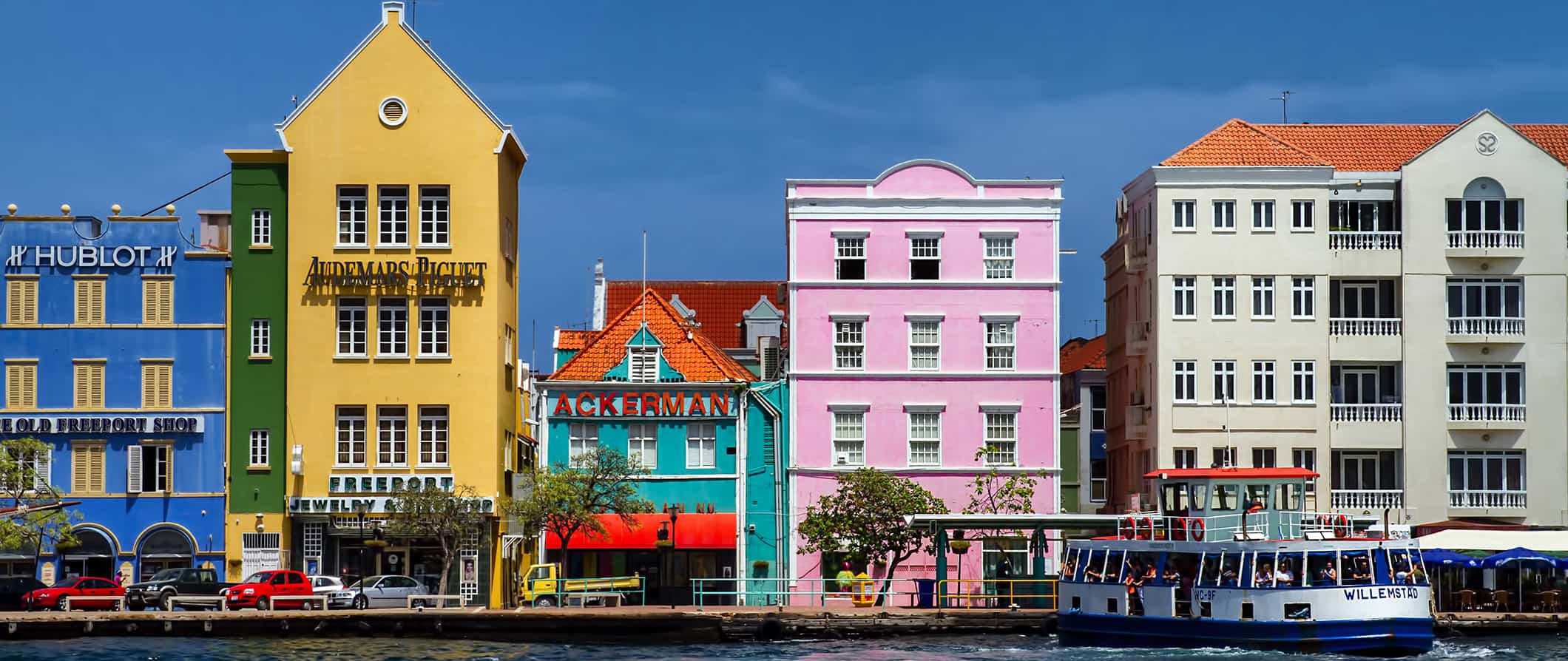
Along with Aruba and Bonaire, Curaçao is one of the three “ABC” islands of the Lesser Antilles in the Caribbean .
As the largest and most populated of the Netherlands Antilles, Curaçao has the most going on and the most “social life.” It’s the hippest island in the chain and the most visited by younger travelers (it has a lot fewer resorts than Aruba ).
The island’s capital, Willemstad, is a bustling city with brightly colored Dutch architecture, and its Old Town area is a UNESCO World Heritage Site. The island boasts delicious restaurants, hidden beaches, and has a lot to see and do.
That said, I didn’t love Curaçao . I liked it and I’m glad I went but I didn’t love it the way other people do. I’m more “in like” with it.
But that doesn’t mean it’s not worth visiting!
This Curaçao travel guide has all the practical information you need to help you plan your visit so you can decide for yourself whether this idyllic island is for you!
Table of Contents
- Things to See and Do
- Typical Costs
- Suggested Budget
- Money-Saving Tips
- Where to Stay
- How to Get Around
- How to Stay Safe
- Best Places to Book Your Trip
- Related Blogs on Curaçao
Top 5 Things to See and Do in Curaçao
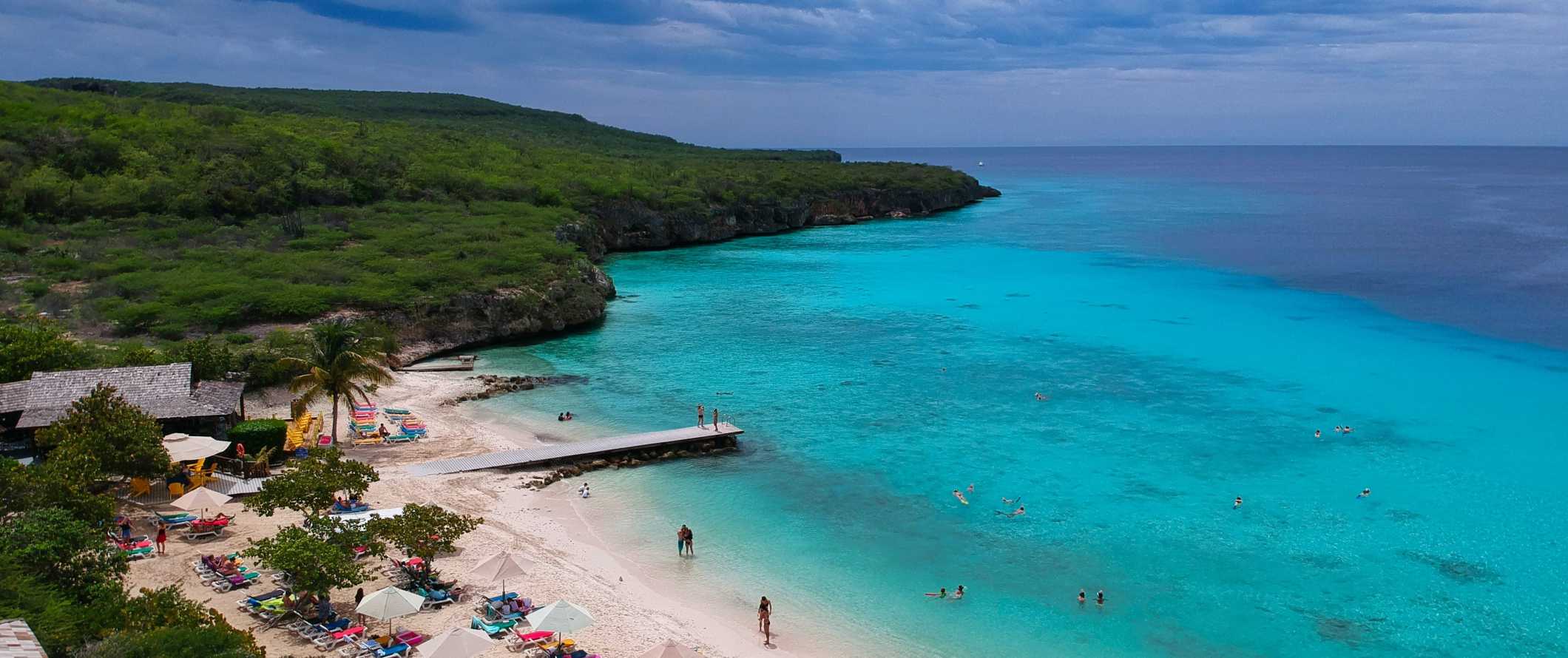
1. Have fun on Mambo Beach
Mambo beach, also known as “Sea Aquarium Beach,” is a lively place with tons going on. It’s the place to be in Curaçao, with beautiful sparkling shores, water sports, and tons of restaurants, shopping, and bars on the boulevard. There are plenty of nightclubs on the island but, for the craziest beach parties, go to Mambo Beach. At Wet’n Wild Beach Club, the beach is transformed into an open-air nightclub on Fridays and Sundays. Live music and DJs keep the party going, especially on Sunday nights.
2. Tour the Hato Caves
The Hato Caves are located near the airport (they are even walkable from there, or you can take a short taxi ride), these 300,000-year-old limestone caves were once hiding spots for escaped slaves, who would hide out for weeks or even months at a time. Climb up the 49 steps to reach the scenic panoramic terrace where you can enter the cave and take a 45-minute guided tour to see the stalagmites, stalactites, bat colony, and cave drawings by the Amerindian Arawaks, which date back over 1,500 years. There are trails outside to enjoy beautiful nature and wildlife on the ‘Indian Trail’ and see the carvings done by the Caiquetio Indians. Admission is 17.50 ANG.
3. Explore Willemstad
A beautiful UNESCO World Heritage Site, Willemstad is like a colorful and tropical version of Amsterdam (after all, the Dutch did colonize the island). This vibrant, artsy city was named after Dutch governor Willem II van Oranje and still has original historical buildings from the 17th and 18th centuries as well as sidewalk cafes and waterways reminiscent of Amsterdam. Both the Punda and Pietermaai areas are chock full of restaurants, galleries, and shops. And don’t miss the Old Market to try delicious local specialties like goat stew and red snapper.
4. Hike around Christoffel Park
Hit the trails around this huge national park to see deer, 10-foot-high cacti, iguanas, rabbits, and rare plant life, including wild orchids. There are many biodiverse scenic mountain and coastal trails for every ability level, including a challenging hike to the top of Christoffel Mountain. Be sure to bring enough water, snacks, and sunscreen. If you’ve got a car, there are two scenic road trails as well if you’d rather not walk but still want to appreciate the wildlife. Admission is 15 ANG, including entrance to the Savonet Museum, which has exhibits about the life of early settlers in the area on the Savonet plantation (as well as the indigenous Arawak).
5. Dive the Superior Producer
This ship sank in 1977 just 152 meters (500 feet) off the Curaçao coast. It was packed with whiskey, perfume, and clothes. Much to the surprise and delight of the local inhabitants, the contents washed up on the coast of Willemstad where people could gather up the rest of the goods. A 400-ton cargo ship, it was originally named Andromeda and was built in 1957 in Kootstertille, Netherlands. These days, the shipwreck makes for one of the most interesting dive spots around the island as the entire vessel has been taken over by coral, tarpons, barracuda, sea sponges, sea whips, and gorgonians. Two-tank dives start from 145-160 ANG.
Other Things to See and Do in Curaçao
1. hang out on blauwbaai beach.
Blauwbaai (Blue Bay) is the busiest beach on Curaçao, offering a wide stretch of white sand, bright blue waters, and swaying palm trees. There are also restaurants and bars along the beach, so you’re always within reach of a cocktail or a snack. It costs 15 ANG to visit, including a sun lounger.
2. Relax on Daaibooi Beach
If you find some of the more popular beaches on Curaçao too crowded, head to Daaibooi Beach. You’ll get to enjoy soft sands and a turquoise sea in relative peace. A lot of locals hang out here, and the shallow, clear water makes for good snorkeling. There’s no entry fee, and the food and drinks nearby are cheaper than at Blauwbaai. If you’re in the mood for beach hopping, other great beaches on the island include Playa Lagun, Cas Abao Beach, and Playa Porto Marie.
3. Dive the Mushroom Forest
Curaçao’s Mushroom Forest teems with marine life, including sea turtles, porcupine fish, and parrotfish. The base of the coral has been slowly eroded by waves, fish, sponges, and clams over time, creating the appearance of huge mushrooms growing on the ocean floor. A two-tank dive costs around 160 ANG.
4. Enjoy Carnival
January marks the beginning of the Curaçao Carnival when the whole island turns into a colorful celebration of friendly competitions, public parties, and street parades. The Carnival wraps up at the end of March (yes, it’s a very long party), with the burning of King Momo at midnight. The life-sized, straw-filled effigy symbolizes infertility, sins, and bad luck.
5. Kayak around the coast
A leisurely guided paddle through Curaçao’s Caracas Bay brings you to secluded beaches and historical landmarks, like Fort Beekenburg. Bring some snorkeling gear and explore the shallow waters around the coast, or chill out and soak up the sun before paddling back across the bay. Tours start from about 90-108 ANG.
6. See the Queen Emma Bridge
This long pontoon bridge in Willemstad was built in 1888 to connect the Punda and Otrobanda neighborhoods. It’s pedestrian-only and unique for its hinged structure with two propellers; the entire bridge can swing parallel to the shore so that boats can come and go out of St. Anna Bay. It’s fun to be on the moving bridge as it swings!
7. Visit Fort Amsterdam
Built in 1635, Fort Amsterdam is the oldest fort in Curaçao. It’s a UNESCO World Heritage Site and once was the island’s most important fortification. Nowadays it’s home to the governor’s house and several government offices as well as the Fortkirche, the oldest church on Curaçao. You can visit the church, which contains its original pulpit, as well as a small historical museum. It’s free to visit.
8. Tour Shete Boka Park
Shete Boka Park covers 10 kilometers (6 miles) of the island’s rocky northern coast. There are 10 secluded beaches here, several of which are home to different species of sea turtles and their nests. Boka Tabla is the most popular inlet, especially for its deep underground cave. There’s also a “secret” blow hole area located near Westpunt (the only way to get there is by off-roading). Jeep tours in the park and to the blowhole start from about 116 ANG.
9. Visit the salt flats
Called saliñas , Curaçao’s salt flats are no longer harvested for their “white gold.” Located in the former Jan Thiel plantation, this popular bleached landscape has some unique flora and fauna and it’s also a great place to see flamingos. Walking tours around the salt flats cost around 45 ANG including water and fruit and last 2-2.5 hours.
10. Take a trip to Klein Curaçao
A mere 24 kilometers (15 miles) of choppy water separates Curaçao and Klein Curaçao (Little Curaçao). This is a great day trip for snorkelers, divers, and sun-worshippers. The island is almost completely uninhabited but there are a few things its former residents left behind, including an old (but functional) lighthouse. Klein, like Curaçao, was part of the 17th and 18th-century slave trade through the Dutch West India Company, and many African slaves were buried here when they were forced to quarantine after falling ill en route to Curaçao. The white sand beach here is longer than any beach on the main island and the coral reefs, clear waters, and abundant marine life makes a visit worth the trip. Bring sunscreen as there’s not much shade. Charters cost around 180 ANG per person or an open bar cruise starts at about 215 ANG.
11. Visit the Kurá Hulanda Museum
This museum is located in the home of a 19th-century merchant and slave owner and tells the story of the African slave trade on Curaçao. The exhibits include 18th-century artifacts and scale models as well as collections of pre-Columbian gold, Mesopotamian relics, and Antillean art. It’s a humbling experience. Admission is 20 ANG. Guided tours need to be arranged in advance.
For information about other Caribbean destinations, check out these guides:
- British Virgin Islands
- Saint Lucia
Curaçao Travel Costs
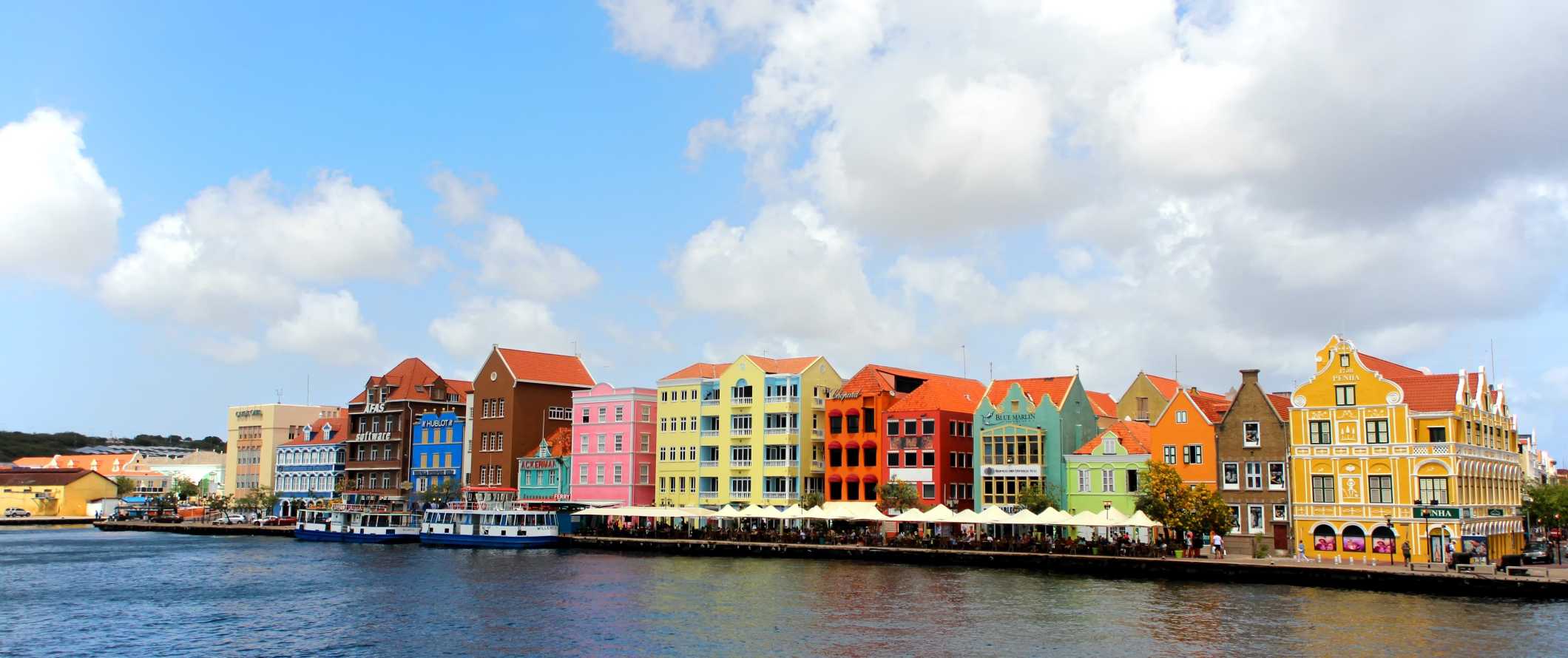
Hostel prices – A bed in a 4-6-bed dorm costs 45-55 ANG per night. A dorm with 8 beds or more isn’t much cheaper, costing about 40 ANG per night. Private rooms cost about 95-100 ANG per night for singles and 120 ANG for doubles. Free Wi-Fi and self-catering facilities are standard.
Budget hotel prices – Budget hotels start at 175-200 ANG per night. Amenities like free Wi-Fi are common, but not included everywhere. Some budget hostels also have pools.
On Airbnb, private rooms average around 100-140 ANG per night while an entire home/apartment averages closer to 235-250 ANG per night. Expect prices to double if you don’t book early.
Food – The cuisine in Curaçao is a mix of Dutch, Caribbean, African, and South American flavors. Seafood, of course, is king, with mahi-mahi, red snapper, and grouper all being commonly caught around the island. Fresh fruit is also super popular. Be sure to try keshi yena (a baked cheeseball with meat), stoba (a hearty meat stew, usually with goat), raw herring, fish tacos, fresh mussels, and oliebollen (small fried donuts).
Sandwiches, burgers, and other fast food costs between 6-14 ANG per meal. A combo meal at McDonald’s costs about 18 ANG.
A casual restaurant meal of seafood or other local cuisine costs around 30 ANG. If you want to splash out, a three-course meal with a drink at a mid-range restaurant costs closer to 65 ANG.
Beer is 5-8 ANG while a latte or cappuccino is around 6.50 ANG. Bottled water is 3 ANG.
If you plan on cooking your own food, basic groceries for one week cost about 85-125 ANG. This gets you staples like rice, pasta, seasonal produce, and some meat or fish.
Backpacking Curaçao Suggested Budgets
If you’re backpacking Curaçao, my suggested budget is around 110 ANG per day. This assumes you’re staying in a hostel dorm, cooking all of your meals, limiting your drinking, taking public transportation to get around, and sticking to mostly free activities like hanging out at the beach. If you plan on drinking, add 10-20 ANG to your daily budget.
On a mid-range budget of 325 ANG per day, you can stay in a private Airbnb, enjoy a few drinks, eat some meals out, take the occasional taxi to get around, and do more paid activities like snorkeling or diving.
On a “luxury” budget of 525 ANG or more per day, you can stay in a hotel, eat out for all your meals, drink as much as you’d like, rent a car or take more taxis, and do whatever tours and activities you want. This is just the ground floor for luxury though. The sky is the limit!
You can use the chart below to get some idea of how much you need to budget daily, depending on your travel style. Keep in mind these are daily averages – some days you’ll spend more, some days you’ll spend less (you might spend less every day). We just want to give you a general idea of how to make your budget. Prices are in ANG.
Curaçao Travel Guide: Money-Saving Tips
Costs in Curaçao can really add up if you’re not careful — but it’s not nearly as expensive as other islands in the Caribbean. Here are some of my recommended ways to save money in Curaçao:
- Stay with a local – If you plan ahead, you can usually find a Couchsurfing host in Curaçao. This is the best way to save money, as you’ll get free accommodation while also connecting with a local who can share their insider tips and advice with you.
- Have a BBQ – BBQing on the beach is a popular local activity and can help you save a lot of money on food. A lot of beaches have BBQ pits, including Daaibooi Beach. Cooking your own meals, in general, is going to save you a lot so skip the restaurants.
- Avoid the taxis – The taxis here are very expensive. They should be avoided at all costs!
- Rent a car – Getting your own set of wheels is the most economical and convenient way to get around to the far parts of the island (especially if you’re not traveling alone). Not renting one was my biggest mistake when I visited Curaçao. Share a car with other travelers to keep things affordable.
- Visit in the shoulder season – Prices can be as much as 50% cheaper for accommodation and activities, so avoid the peak season to save money (more on this below).
- Bring a water bottle – The tap water here is safe to drink so bring a reusable water bottle to save money and reduce your plastic use. LifeStraw is my go-to brand as their bottles have built-in filters to ensure your water is always clean and safe.
Where to Stay in Curaçao
Curaçao’s hostels are clean, comfy, and well-maintained. Many of them even have pools or easy access to the beach. My suggested places to stay in Curaçao are:
- First Curaçao Hostel
- Bed & Bike Curaçao
- Willemstad Resort
How to Get Around Curaçao
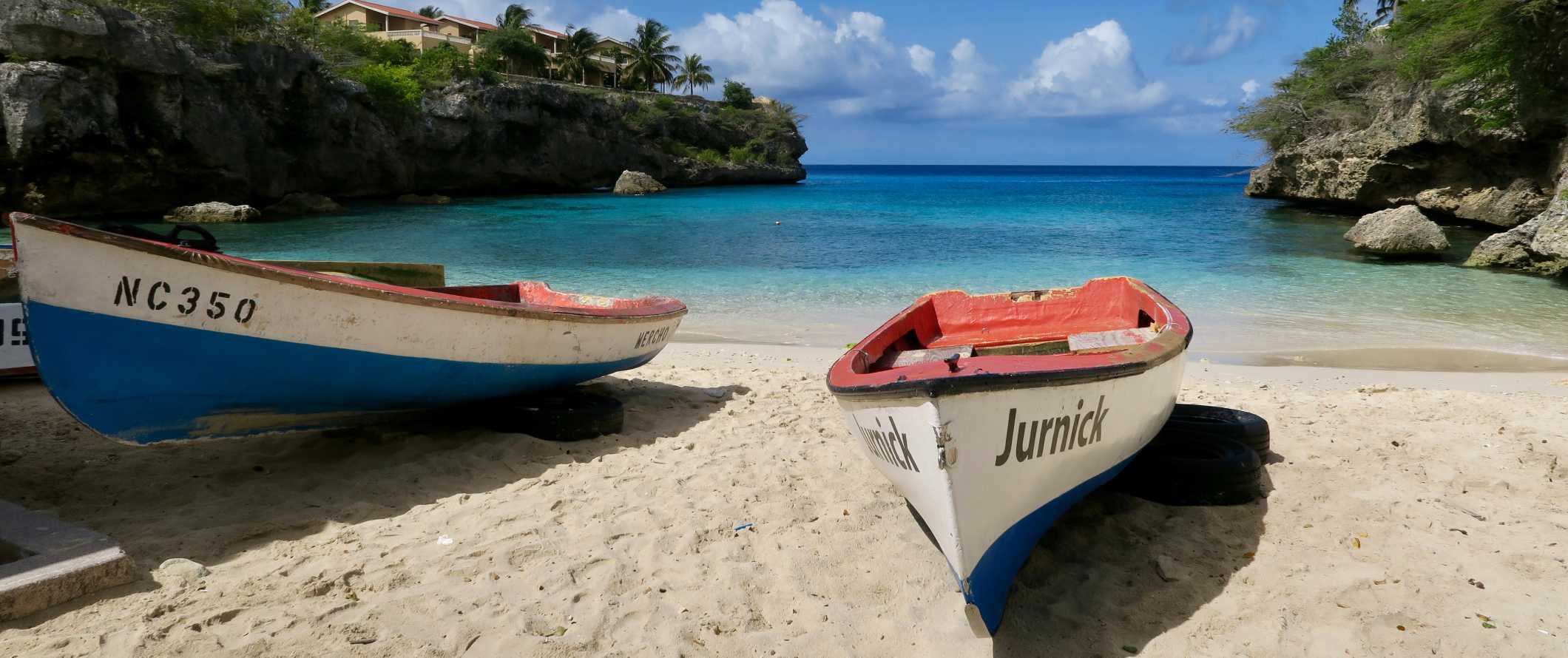
Public transportation – Curaçao has a public bus network, although it’s very limited. There are buses to the West End (Willemstad) departing from Otrobanda and buses to the southeast leaving Punda (also in Willemstad). Fare cost around 2.40 ANG.
Bicycle – Although Curaçao is a Dutch colony, it’s surprisingly hard to get around here on a bicycle. Expect to spend around 40 ANG per day for a bike rental (30 ANG if you rent for a week or more).
Taxi – Taxis in Curaçao are safe and reliable. Although not all of them have meters, most of them have rate sheets. They’re best for getting around Willemstad, as longer journeys cost much more. Compared to the bus, they’re super pricey so skip them if you’re on a budget!
Car rental – A car rental is one of the most economical and efficient ways to get around the island, and there are several major car rental chains at the airport. Rentals cost around 78-85 ANG per day for a multi-day rental. Drivers need to be at least 21 years of age (though some companies require you to be 23).
For the best car rental prices, use Discover Cars .
When to Go to Curaçao
December to April are the busiest months in Curaçao. This is when hotel rates are the highest and prices for activities spike. On the other hand, the water visibility is ideal for diving and snorkeling. Average daily temperatures during this time hover around 30°C (87°F).
Personally, I recommend visiting Curaçao between May-November. During this off-peak season, accommodation and activity rates are up to 50% lower than in the peak season. The beaches are much less busy during this time and temperatures are still hot and pleasant in both July and August, with daily highs soaring as high as 32°C (89°F).
Curaçao is also outside the hurricane zone, so you don’t have to worry too much about tropical storms.
How to Stay Safe in Curaçao
Curaçao is considered one of the safest places to visit in the Caribbean. It’s a small island with little crime, though petty theft can occur so don’t leave your valuables out in the open at the beach (or anywhere) just to be safe.
Solo female travelers should generally feel safe here, however, the standard precautions apply (never leave your drink unattended at the bar, never walk home alone intoxicated, etc.).
Scams here are rare, but if you’re worried about getting ripped off, you can read about common travel scams to avoid right here.
As with the neighboring “ABC” islands, hurricanes are rare here and shouldn’t be a major concern like elsewhere in the Caribbean.
If you experience an emergency, dial 911 for assistance.
The most important piece of advice I can offer is to purchase good travel insurance. Travel insurance protects you against illness, injury, theft, and cancellations. It’s comprehensive protection in case anything goes wrong. I never go on a trip without it as I’ve had to use it many times in the past.
Curaçao Travel Guide: The Best Booking Resources
These are my favorite companies to use when I travel. They consistently have the best deals, offer world-class customer service and great value, and overall, are better than their competitors. They are the companies I use the most and are always the starting point in my search for travel deals.
- Skyscanner – Skyscanner is my favorite flight search engine. They search small websites and budget airlines that larger search sites tend to miss. They are hands down the number one place to start.
- Hostelworld – This is the best hostel accommodation site out there with the largest inventory, best search interface, and widest availability.
- Booking.com – The best all around booking site that constantly provides the cheapest and lowest rates. They have the widest selection of budget accommodation. In all my tests, they’ve always had the cheapest rates out of all the booking websites.
- Get Your Guide – Get Your Guide is a huge online marketplace for tours and excursions. They have tons of tour options available in cities all around the world, including everything from cooking classes, walking tours, street art lessons, and more!
- SafetyWing – Safety Wing offers convenient and affordable plans tailored to digital nomads and long-term travelers. They have cheap monthly plans, great customer service, and an easy-to-use claims process that makes it perfect for those on the road.
- LifeStraw – My go-to company for reusable water bottles with built-in filters so you can ensure your drinking water is always clean and safe.
- Unbound Merino – They make lightweight, durable, easy-to-clean travel clothing.
- Top Travel Credit Cards – Points are the best way to cut down travel expenses. Here’s my favorite point earning credit cards so you can get free travel!
Curaçao Travel Guide: Related Articles
Want more info? Check out all the articles I’ve written on backpacking/traveling the Caribbean and continue planning your trip:
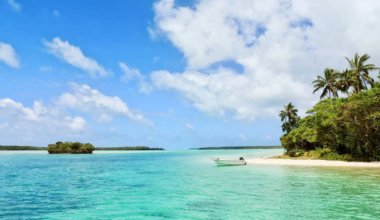
9 Ways to Explore the Caribbean Sustainably
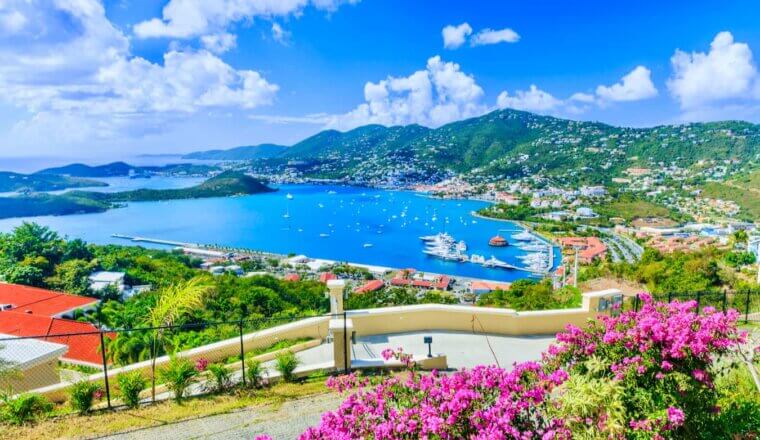
My 16 Favorite Things to Do in the Virgin Islands
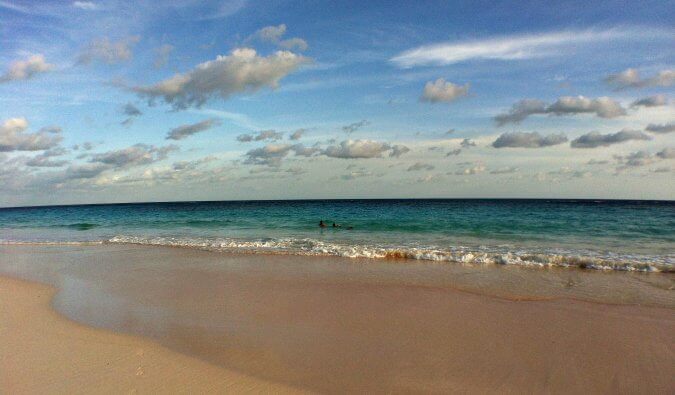
Bermuda: The Impossible Budget Destination? Maybe Not!
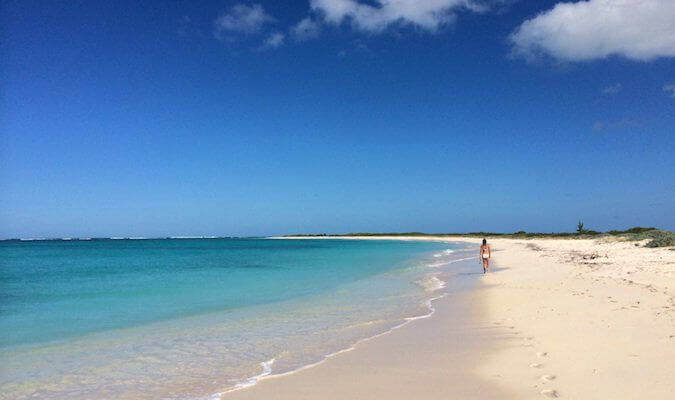

How to Save (and Not Save) Money in the Virgin Islands
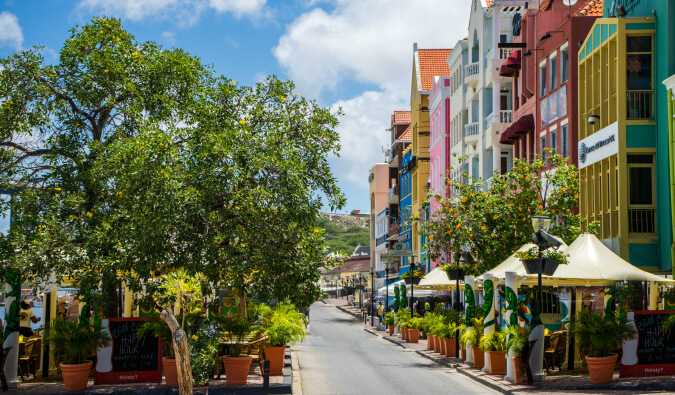
I Didn’t Like Curaçao (But I Didn’t Hate it Either)
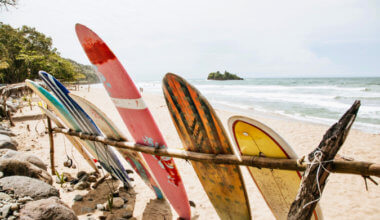
The Best Places on Costa Rica’s Caribbean Coast
Get your free travel starter kit.
Enter your email and get planning cheatsheets including a step by step checklist, packing list, tips cheat sheet, and more so you can plan like a pro!

- Where To Stay
- Transportation
- Booking Resources
- Related Blogs
You are using an outdated browser. Upgrade your browser today or install Google Chrome Frame to better experience this site.
Curaçao Traveler View
Travel health notices, vaccines and medicines, non-vaccine-preventable diseases, stay healthy and safe.
- Packing List
After Your Trip
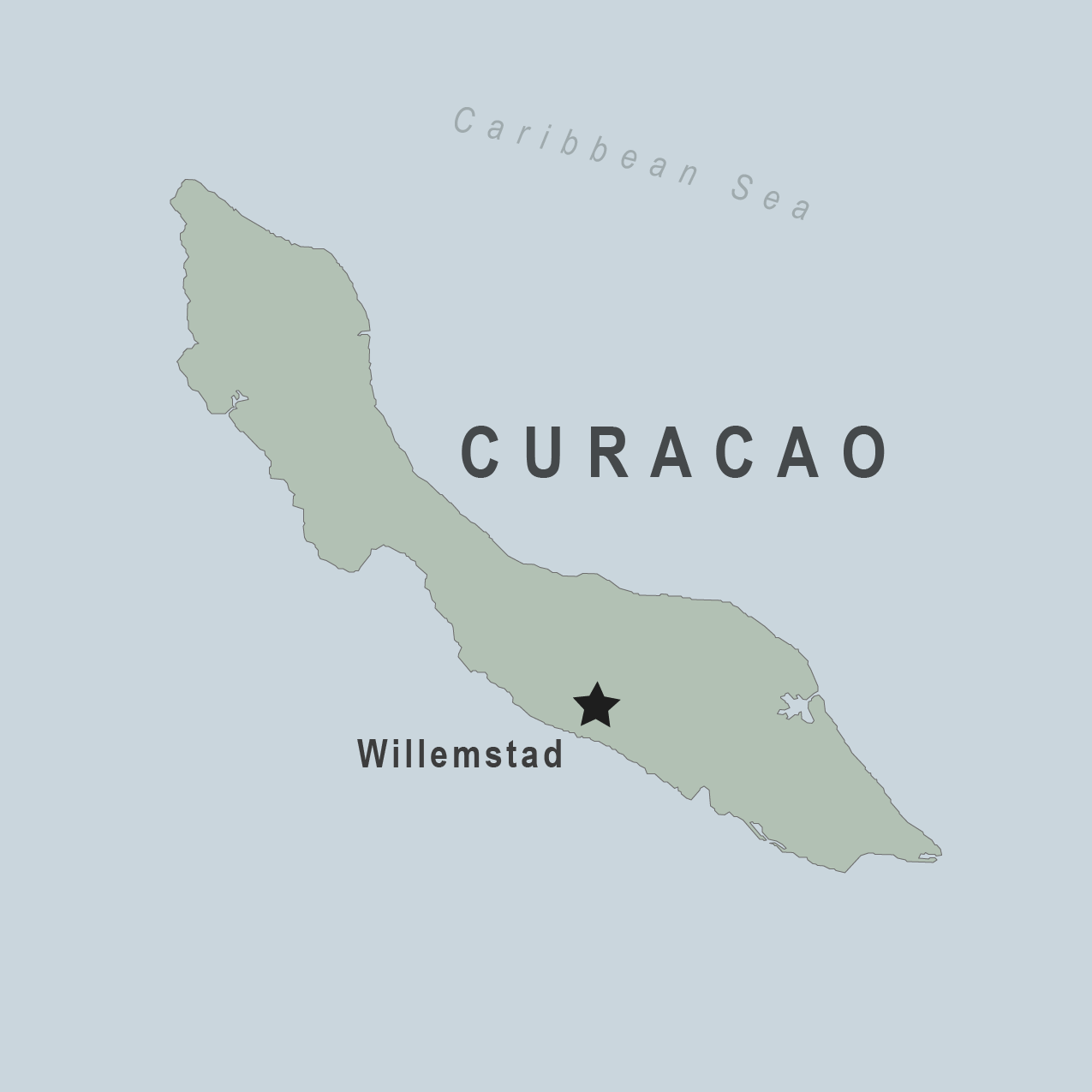
Be aware of current health issues in Curaçao. Learn how to protect yourself.
Level 1 Practice Usual Precautions
- Dengue in the Americas May 16, 2024 Dengue is a risk in many parts of Central and South America, Mexico, and the Caribbean. Some countries are reporting increased numbers of cases of the disease. Travelers to the Americas can protect themselves by preventing mosquito bites. Destination List: Argentina, Brazil, Colombia, Costa Rica, Curaçao, Ecuador, including the Galápagos Islands, French Guiana (France), Guadeloupe, Guatemala, Guyana, Honduras, Martinique (France), Mexico, Nicaragua, Panama, Paraguay, Peru, Uruguay
⇧ Top
Check the vaccines and medicines list and visit your doctor at least a month before your trip to get vaccines or medicines you may need. If you or your doctor need help finding a location that provides certain vaccines or medicines, visit the Find a Clinic page.
Routine vaccines
Recommendations.
Make sure you are up-to-date on all routine vaccines before every trip. Some of these vaccines include
- Chickenpox (Varicella)
- Diphtheria-Tetanus-Pertussis
- Flu (influenza)
- Measles-Mumps-Rubella (MMR)
Immunization schedules
All eligible travelers should be up to date with their COVID-19 vaccines. Please see Your COVID-19 Vaccination for more information.
COVID-19 vaccine
Hepatitis A
Recommended for unvaccinated travelers one year old or older going to Curaçao.
Infants 6 to 11 months old should also be vaccinated against Hepatitis A. The dose does not count toward the routine 2-dose series.
Travelers allergic to a vaccine component or who are younger than 6 months should receive a single dose of immune globulin, which provides effective protection for up to 2 months depending on dosage given.
Unvaccinated travelers who are over 40 years old, immunocompromised, or have chronic medical conditions planning to depart to a risk area in less than 2 weeks should get the initial dose of vaccine and at the same appointment receive immune globulin.
Hepatitis A - CDC Yellow Book
Dosing info - Hep A
Hepatitis B
Recommended for unvaccinated travelers of all ages traveling to Curaçao.
Hepatitis B - CDC Yellow Book
Dosing info - Hep B
Cases of measles are on the rise worldwide. Travelers are at risk of measles if they have not been fully vaccinated at least two weeks prior to departure, or have not had measles in the past, and travel internationally to areas where measles is spreading.
All international travelers should be fully vaccinated against measles with the measles-mumps-rubella (MMR) vaccine, including an early dose for infants 6–11 months, according to CDC’s measles vaccination recommendations for international travel .
Measles (Rubeola) - CDC Yellow Book
Dogs infected with rabies are not commonly found in Curaçao.
If rabies exposures occur while in Curaçao, rabies vaccines are typically available throughout most of the country.
Rabies pre-exposure vaccination considerations include whether travelers 1) will be performing occupational or recreational activities that increase risk for exposure to potentially rabid animals and 2) might have difficulty getting prompt access to safe post-exposure prophylaxis.
Please consult with a healthcare provider to determine whether you should receive pre-exposure vaccination before travel.
For more information, see country rabies status assessments .
Rabies - CDC Yellow Book
Recommended for most travelers, especially those staying with friends or relatives or visiting smaller cities or rural areas.
Typhoid - CDC Yellow Book
Dosing info - Typhoid
Yellow Fever
Required for travelers ≥9 months old arriving from countries with risk for YF virus transmission; this includes >12-hour airport transits or layovers in countries with risk for YF virus transmission. 1
Yellow Fever - CDC Yellow Book
Avoid contaminated water
Leptospirosis
How most people get sick (most common modes of transmission)
- Touching urine or other body fluids from an animal infected with leptospirosis
- Swimming or wading in urine-contaminated fresh water, or contact with urine-contaminated mud
- Drinking water or eating food contaminated with animal urine
- Avoid contaminated water and soil
- Avoid floodwater
Clinical Guidance
Avoid bug bites.
- Mosquito bite
- Avoid Bug Bites
- An infected pregnant woman can spread it to her unborn baby
Airborne & droplet
- Breathing in air or accidentally eating food contaminated with the urine, droppings, or saliva of infected rodents
- Bite from an infected rodent
- Less commonly, being around someone sick with hantavirus (only occurs with Andes virus)
- Avoid rodents and areas where they live
- Avoid sick people
Tuberculosis (TB)
- Breathe in TB bacteria that is in the air from an infected and contagious person coughing, speaking, or singing.
Learn actions you can take to stay healthy and safe on your trip. Vaccines cannot protect you from many diseases in Curaçao, so your behaviors are important.
Eat and drink safely
Food and water standards around the world vary based on the destination. Standards may also differ within a country and risk may change depending on activity type (e.g., hiking versus business trip). You can learn more about safe food and drink choices when traveling by accessing the resources below.
- Choose Safe Food and Drinks When Traveling
- Water Treatment Options When Hiking, Camping or Traveling
- Global Water, Sanitation and Hygiene | Healthy Water
- Avoid Contaminated Water During Travel
You can also visit the Department of State Country Information Pages for additional information about food and water safety.
Prevent bug bites
Bugs (like mosquitoes, ticks, and fleas) can spread a number of diseases in Curaçao. Many of these diseases cannot be prevented with a vaccine or medicine. You can reduce your risk by taking steps to prevent bug bites.
What can I do to prevent bug bites?
- Cover exposed skin by wearing long-sleeved shirts, long pants, and hats.
- Use an appropriate insect repellent (see below).
- Use permethrin-treated clothing and gear (such as boots, pants, socks, and tents). Do not use permethrin directly on skin.
- Stay and sleep in air-conditioned or screened rooms.
- Use a bed net if the area where you are sleeping is exposed to the outdoors.
What type of insect repellent should I use?
- FOR PROTECTION AGAINST TICKS AND MOSQUITOES: Use a repellent that contains 20% or more DEET for protection that lasts up to several hours.
- Picaridin (also known as KBR 3023, Bayrepel, and icaridin)
- Oil of lemon eucalyptus (OLE) or para-menthane-diol (PMD)
- 2-undecanone
- Always use insect repellent as directed.
What should I do if I am bitten by bugs?
- Avoid scratching bug bites, and apply hydrocortisone cream or calamine lotion to reduce the itching.
- Check your entire body for ticks after outdoor activity. Be sure to remove ticks properly.
What can I do to avoid bed bugs?
Although bed bugs do not carry disease, they are an annoyance. See our information page about avoiding bug bites for some easy tips to avoid them. For more information on bed bugs, see Bed Bugs .
For more detailed information on avoiding bug bites, see Avoid Bug Bites .
Stay safe outdoors
If your travel plans in Curaçao include outdoor activities, take these steps to stay safe and healthy during your trip.
- Stay alert to changing weather conditions and adjust your plans if conditions become unsafe.
- Prepare for activities by wearing the right clothes and packing protective items, such as bug spray, sunscreen, and a basic first aid kit.
- Consider learning basic first aid and CPR before travel. Bring a travel health kit with items appropriate for your activities.
- If you are outside for many hours in heat, eat salty snacks and drink water to stay hydrated and replace salt lost through sweating.
- Protect yourself from UV radiation : use sunscreen with an SPF of at least 15, wear protective clothing, and seek shade during the hottest time of day (10 a.m.–4 p.m.).
- Be especially careful during summer months and at high elevation. Because sunlight reflects off snow, sand, and water, sun exposure may be increased during activities like skiing, swimming, and sailing.
- Very cold temperatures can be dangerous. Dress in layers and cover heads, hands, and feet properly if you are visiting a cold location.
Stay safe around water
- Swim only in designated swimming areas. Obey lifeguards and warning flags on beaches.
- Practice safe boating—follow all boating safety laws, do not drink alcohol if driving a boat, and always wear a life jacket.
- Do not dive into shallow water.
- Do not swim in freshwater in developing areas or where sanitation is poor.
- Avoid swallowing water when swimming. Untreated water can carry germs that make you sick.
- To prevent infections, wear shoes on beaches where there may be animal waste.
Keep away from animals
Most animals avoid people, but they may attack if they feel threatened, are protecting their young or territory, or if they are injured or ill. Animal bites and scratches can lead to serious diseases such as rabies.
Follow these tips to protect yourself:
- Do not touch or feed any animals you do not know.
- Do not allow animals to lick open wounds, and do not get animal saliva in your eyes or mouth.
- Avoid rodents and their urine and feces.
- Traveling pets should be supervised closely and not allowed to come in contact with local animals.
- If you wake in a room with a bat, seek medical care immediately. Bat bites may be hard to see.
All animals can pose a threat, but be extra careful around dogs, bats, monkeys, sea animals such as jellyfish, and snakes. If you are bitten or scratched by an animal, immediately:
- Wash the wound with soap and clean water.
- Go to a doctor right away.
- Tell your doctor about your injury when you get back to the United States.
Consider buying medical evacuation insurance. Rabies is a deadly disease that must be treated quickly, and treatment may not be available in some countries.
Reduce your exposure to germs
Follow these tips to avoid getting sick or spreading illness to others while traveling:
- Wash your hands often, especially before eating.
- If soap and water aren’t available, clean hands with hand sanitizer (containing at least 60% alcohol).
- Don’t touch your eyes, nose, or mouth. If you need to touch your face, make sure your hands are clean.
- Cover your mouth and nose with a tissue or your sleeve (not your hands) when coughing or sneezing.
- Try to avoid contact with people who are sick.
- If you are sick, stay home or in your hotel room, unless you need medical care.
Avoid sharing body fluids
Diseases can be spread through body fluids, such as saliva, blood, vomit, and semen.
Protect yourself:
- Use latex condoms correctly.
- Do not inject drugs.
- Limit alcohol consumption. People take more risks when intoxicated.
- Do not share needles or any devices that can break the skin. That includes needles for tattoos, piercings, and acupuncture.
- If you receive medical or dental care, make sure the equipment is disinfected or sanitized.
Know how to get medical care while traveling
Plan for how you will get health care during your trip, should the need arise:
- Carry a list of local doctors and hospitals at your destination.
- Review your health insurance plan to determine what medical services it would cover during your trip. Consider purchasing travel health and medical evacuation insurance.
- Carry a card that identifies, in the local language, your blood type, chronic conditions or serious allergies, and the generic names of any medications you take.
- Some prescription drugs may be illegal in other countries. Call Curaçao’s embassy to verify that all of your prescription(s) are legal to bring with you.
- Bring all the medicines (including over-the-counter medicines) you think you might need during your trip, including extra in case of travel delays. Ask your doctor to help you get prescriptions filled early if you need to.
Many foreign hospitals and clinics are accredited by the Joint Commission International. A list of accredited facilities is available at their website ( www.jointcommissioninternational.org ).
In some countries, medicine (prescription and over-the-counter) may be substandard or counterfeit. Bring the medicines you will need from the United States to avoid having to buy them at your destination.
Select safe transportation
Motor vehicle crashes are the #1 killer of healthy US citizens in foreign countries.
In many places cars, buses, large trucks, rickshaws, bikes, people on foot, and even animals share the same lanes of traffic, increasing the risk for crashes.
Be smart when you are traveling on foot.
- Use sidewalks and marked crosswalks.
- Pay attention to the traffic around you, especially in crowded areas.
- Remember, people on foot do not always have the right of way in other countries.
Riding/Driving
Choose a safe vehicle.
- Choose official taxis or public transportation, such as trains and buses.
- Ride only in cars that have seatbelts.
- Avoid overcrowded, overloaded, top-heavy buses and minivans.
- Avoid riding on motorcycles or motorbikes, especially motorbike taxis. (Many crashes are caused by inexperienced motorbike drivers.)
- Choose newer vehicles—they may have more safety features, such as airbags, and be more reliable.
- Choose larger vehicles, which may provide more protection in crashes.
Think about the driver.
- Do not drive after drinking alcohol or ride with someone who has been drinking.
- Consider hiring a licensed, trained driver familiar with the area.
- Arrange payment before departing.
Follow basic safety tips.
- Wear a seatbelt at all times.
- Sit in the back seat of cars and taxis.
- When on motorbikes or bicycles, always wear a helmet. (Bring a helmet from home, if needed.)
- Avoid driving at night; street lighting in certain parts of Curaçao may be poor.
- Do not use a cell phone or text while driving (illegal in many countries).
- Travel during daylight hours only, especially in rural areas.
- If you choose to drive a vehicle in Curaçao, learn the local traffic laws and have the proper paperwork.
- Get any driving permits and insurance you may need. Get an International Driving Permit (IDP). Carry the IDP and a US-issued driver's license at all times.
- Check with your auto insurance policy's international coverage, and get more coverage if needed. Make sure you have liability insurance.
- Avoid using local, unscheduled aircraft.
- If possible, fly on larger planes (more than 30 seats); larger airplanes are more likely to have regular safety inspections.
- Try to schedule flights during daylight hours and in good weather.
Medical Evacuation Insurance
If you are seriously injured, emergency care may not be available or may not meet US standards. Trauma care centers are uncommon outside urban areas. Having medical evacuation insurance can be helpful for these reasons.
Helpful Resources
Road Safety Overseas (Information from the US Department of State): Includes tips on driving in other countries, International Driving Permits, auto insurance, and other resources.
The Association for International Road Travel has country-specific Road Travel Reports available for most countries for a minimal fee.
Maintain personal security
Use the same common sense traveling overseas that you would at home, and always stay alert and aware of your surroundings.
Before you leave
- Research your destination(s), including local laws, customs, and culture.
- Monitor travel advisories and alerts and read travel tips from the US Department of State.
- Enroll in the Smart Traveler Enrollment Program (STEP) .
- Leave a copy of your itinerary, contact information, credit cards, and passport with someone at home.
- Pack as light as possible, and leave at home any item you could not replace.
While at your destination(s)
- Carry contact information for the nearest US embassy or consulate .
- Carry a photocopy of your passport and entry stamp; leave the actual passport securely in your hotel.
- Follow all local laws and social customs.
- Do not wear expensive clothing or jewelry.
- Always keep hotel doors locked, and store valuables in secure areas.
- If possible, choose hotel rooms between the 2nd and 6th floors.
Healthy Travel Packing List
Use the Healthy Travel Packing List for Curaçao for a list of health-related items to consider packing for your trip. Talk to your doctor about which items are most important for you.
Why does CDC recommend packing these health-related items?
It’s best to be prepared to prevent and treat common illnesses and injuries. Some supplies and medicines may be difficult to find at your destination, may have different names, or may have different ingredients than what you normally use.
If you are not feeling well after your trip, you may need to see a doctor. If you need help finding a travel medicine specialist, see Find a Clinic . Be sure to tell your doctor about your travel, including where you went and what you did on your trip. Also tell your doctor if you were bitten or scratched by an animal while traveling.
For more information on what to do if you are sick after your trip, see Getting Sick after Travel .
Map Disclaimer - The boundaries and names shown and the designations used on maps do not imply the expression of any opinion whatsoever on the part of the Centers for Disease Control and Prevention concerning the legal status of any country, territory, city or area or of its authorities, or concerning the delimitation of its frontiers or boundaries. Approximate border lines for which there may not yet be full agreement are generally marked.
Other Destinations
If you need help finding travel information:
Message & data rates may apply. CDC Privacy Policy
File Formats Help:
- Adobe PDF file
- Microsoft PowerPoint file
- Microsoft Word file
- Microsoft Excel file
- Audio/Video file
- Apple Quicktime file
- RealPlayer file
- Zip Archive file
Exit Notification / Disclaimer Policy
- The Centers for Disease Control and Prevention (CDC) cannot attest to the accuracy of a non-federal website.
- Linking to a non-federal website does not constitute an endorsement by CDC or any of its employees of the sponsors or the information and products presented on the website.
- You will be subject to the destination website's privacy policy when you follow the link.
- CDC is not responsible for Section 508 compliance (accessibility) on other federal or private website.
7 reasons why Curaçao should be your next Caribbean vacation

Aug 11, 2021 • 6 min read
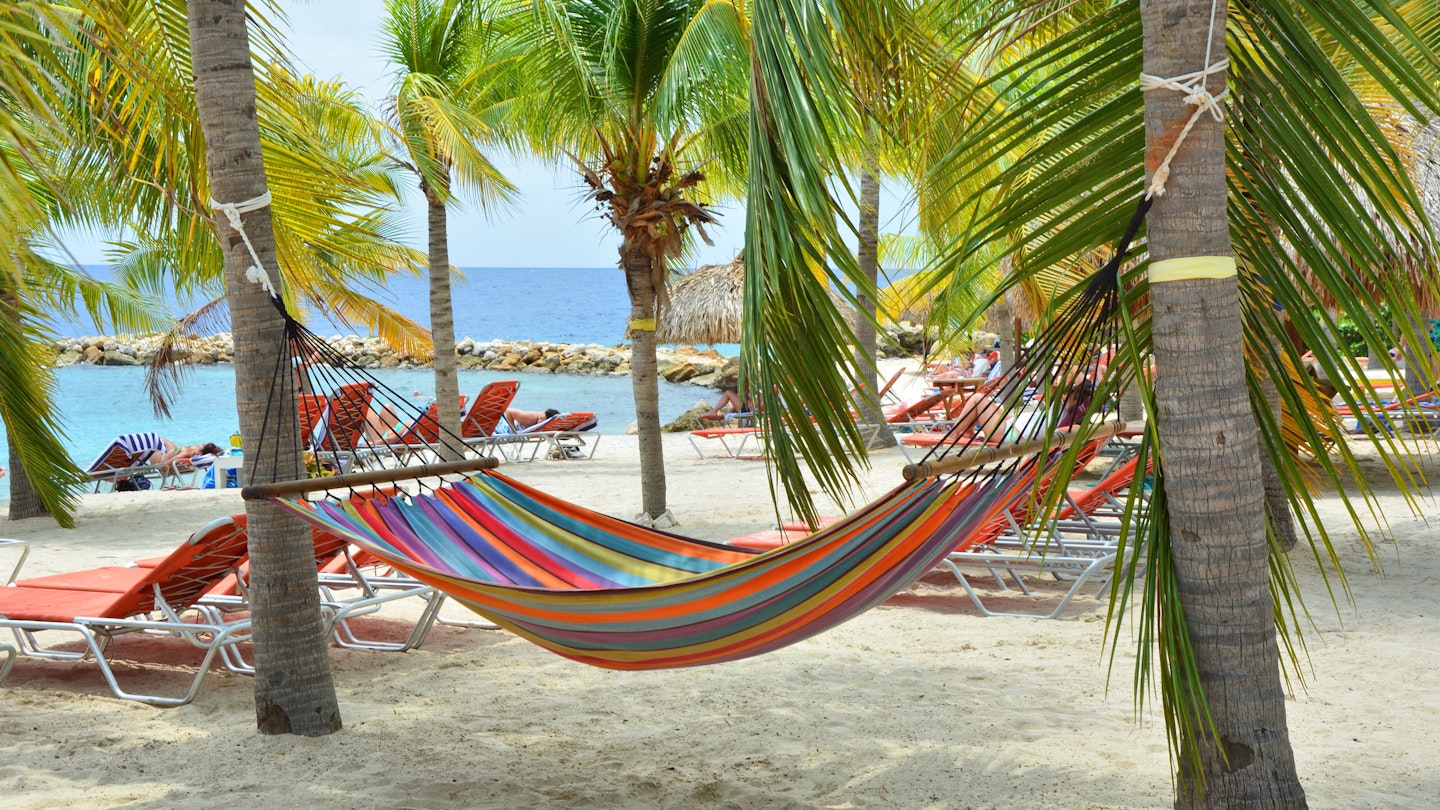
Soak up the sun on a trip to Curaçao, one of the Caribbean's more affordable islands © Studio Barcelona / Shutterstock
If you head to Curaçao’s capital, Willemstad, you’ll find a larger-than-life installation spelling out the local expression dushi , meaning "sweet" or "nice."
It’s safe to say that the word has become the unofficial slogan of the island, so head on down, grab yourself a blue drink (tinted by Curaçao’s signature liqueur, of course) and enjoy the dushi life of sun and sand.
Here are the top reasons why Curaçao should be your next vacation destination in the Caribbean.
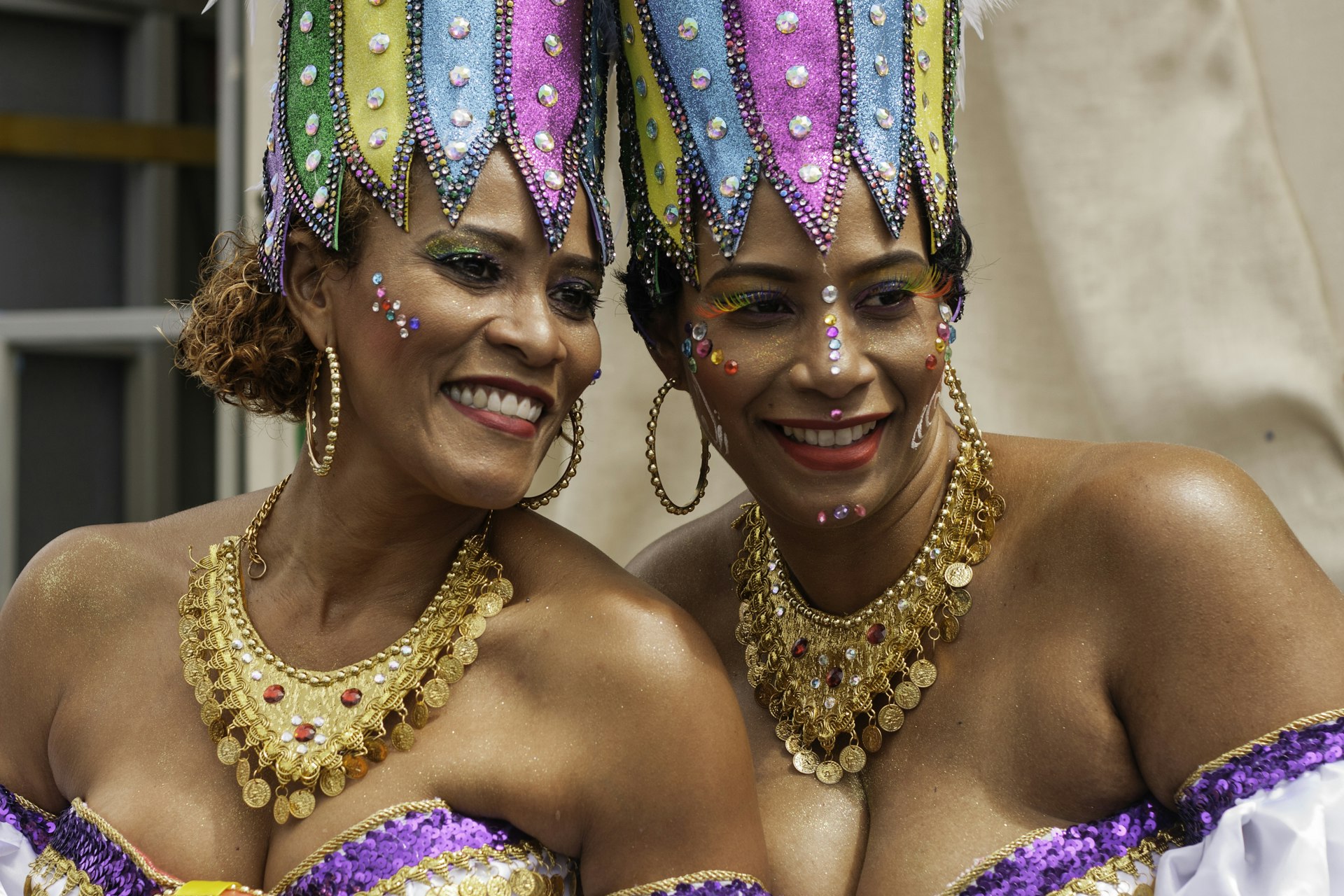
1. Curaçao’s diverse cultural heritage
Curaçao harbors one of the most multifaceted cultures in the Caribbean , thanks to its long, varied history and its close proximity to South America. Originally settled by the Arawaks nearly 6000 years ago, the island came under Spanish rule in the early 16th century, but it was abandoned because of its perceived lack of riches. The Dutch West India Company picked up where the Spanish left off, and Curaçao became a major hub for the slave trade.
In the mid-1600s, large numbers of Jewish refugees settled in Curaçao to escape the Spanish and Portuguese Inquisitions. The island was later shuffled back and forth between the Dutch and the British Empire before the Netherlands finally claimed ownership in 1815. Today, Curaçao exists as an independent state, but citizens carry Dutch passports.
It’s not uncommon to hear Curaçaoans ping pong between languages, as most people speak multiple: Dutch, Spanish, Papiamentu (the local creole) and English. These diverse cultural influences also manifest in the country’s music – radios blast bachata, reggaetón, American pop, tumba and ritmo kombina , the island’s own genre of tunes – as well as in its food scene. Iguana stew with a side of bitterballen, anyone?

2. Historic downtown Willemstad
First established in 1634 with the construction of Fort Amsterdam , Willemstad is the feather in Curaçao’s historical cap. Its downtown, a Unesco World Heritage site filled with candy-colored Dutch colonial buildings, simultaneously exudes European and tropical vibes, and is a port favorite for cruise-goers. Just as fascinating as the well-preserved buildings are the not-so-preserved ones, perfect in their crumbling grandeur.
While the town’s Handelskade (Merchant’s Wharf) is an iconic spot to hang out, take the time to wander the winding streets of the city, where you’ll find inviting bars, authentic dining spots such as Plasa Bieu, and the technicolor floating market, where fruit vendors from Venezuela dock to sell their wares. The market itself doesn't actually float, but the sellers' boats bob behind their brightly hued stalls full of mangoes, plantains and papayas.
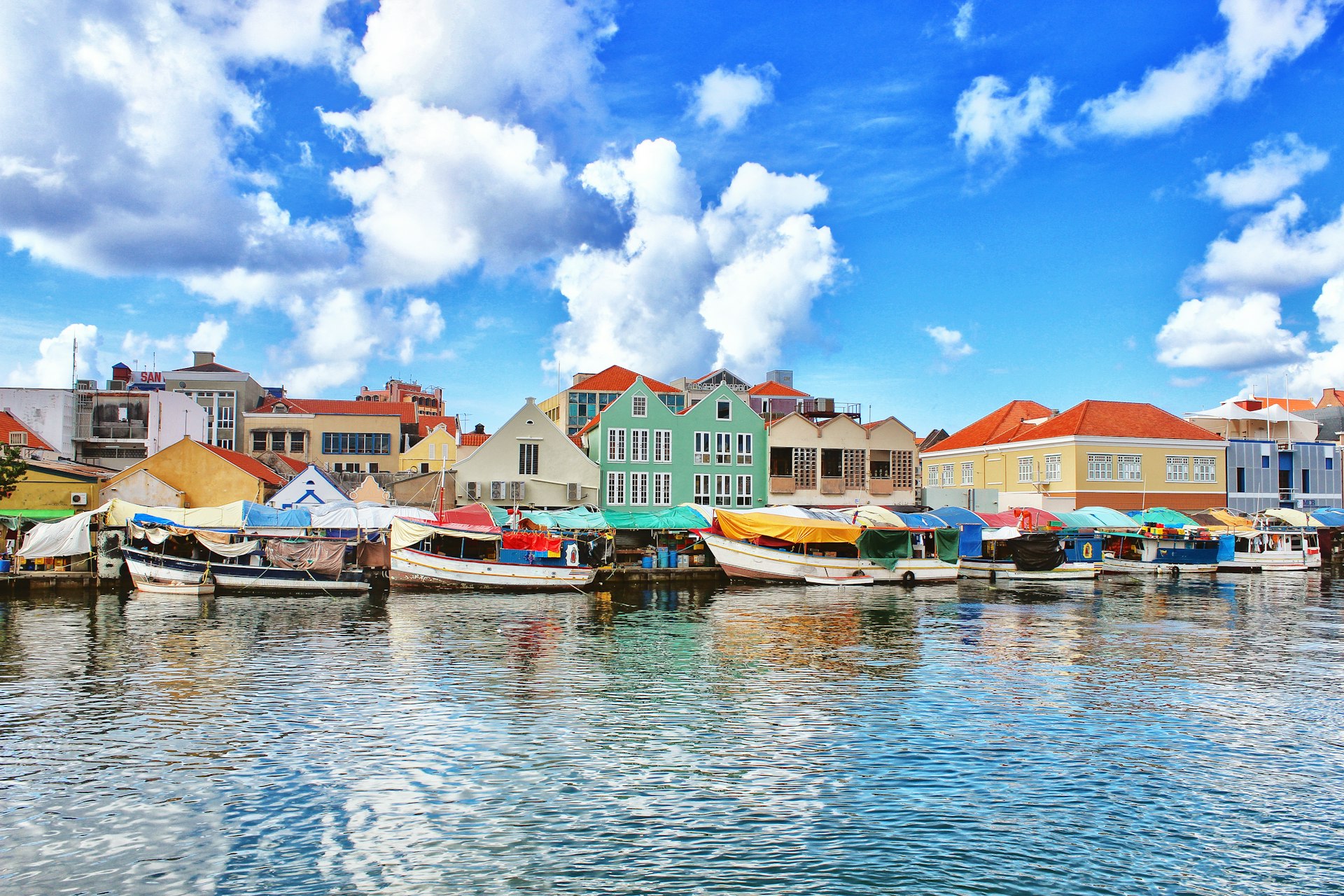
Downtown Willemstad is also home to Museum Kura Hulanda . Housed in 19th-century slave quarters, the museum's exhibits extensively cover the history of slavery in the Caribbean, a story in which Curaçao played a central role.
Interesting fact: Curaçao’s colorful buildings weren’t always that way. In 1918, Governor Albert Kickert complained of constant headaches that he attributed to the then-whitewashed city. He ordered all the buildings to be repainted in different colors to combat the reflective nature of the white walls and end his suffering. It turns out that Kickert actually owned a paint company that profited immensely off the new law, prompting Curaçao to prohibit their politicians from having private economic interests.
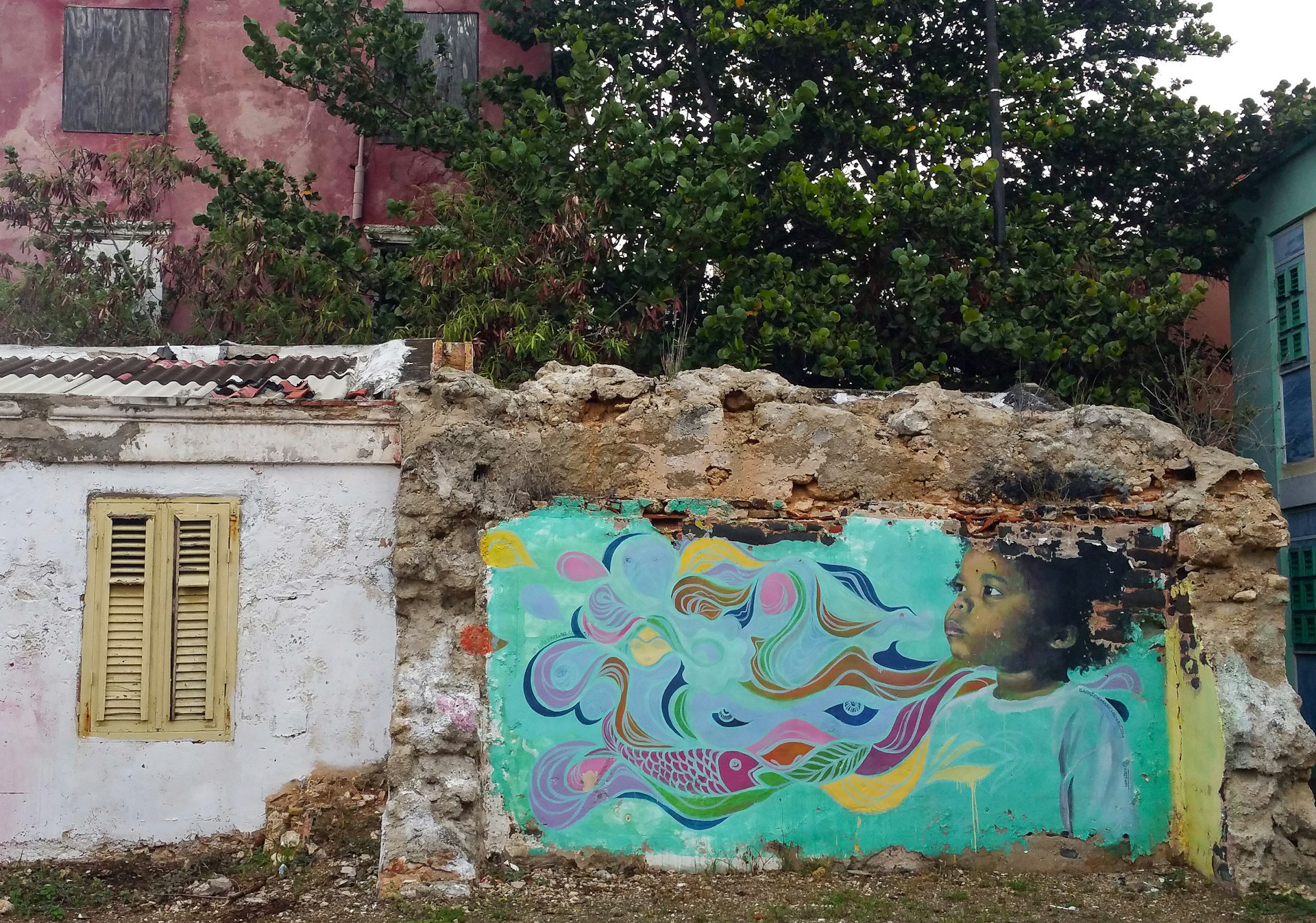
3. Curaçao's artsy side
When you think of street art, Curaçao is probably not on your radar, but that’s where you would be mistaken. Colorful murals sprawl across Willemstad’s buildings, particularly in the Otrobanda and Pietermaai neighborhoods, the latter of which is the city’s coolest new avenue for food and night life. Designs range from geometric shapes to realistic portraits to political commentary. Curaçao’s art scene also thrives in a number of museums and galleries. Learn about the Chichi figurine at Serena’s Art Factory or pick up a colorful print at Nena Sanchez’s downtown gallery . Nena has painted murals of her famous blue women across the city, so see if you can spot them. To see Willemstad's largest collection of works by Curaçaoan artists, head over to Gallery Alma Blou .
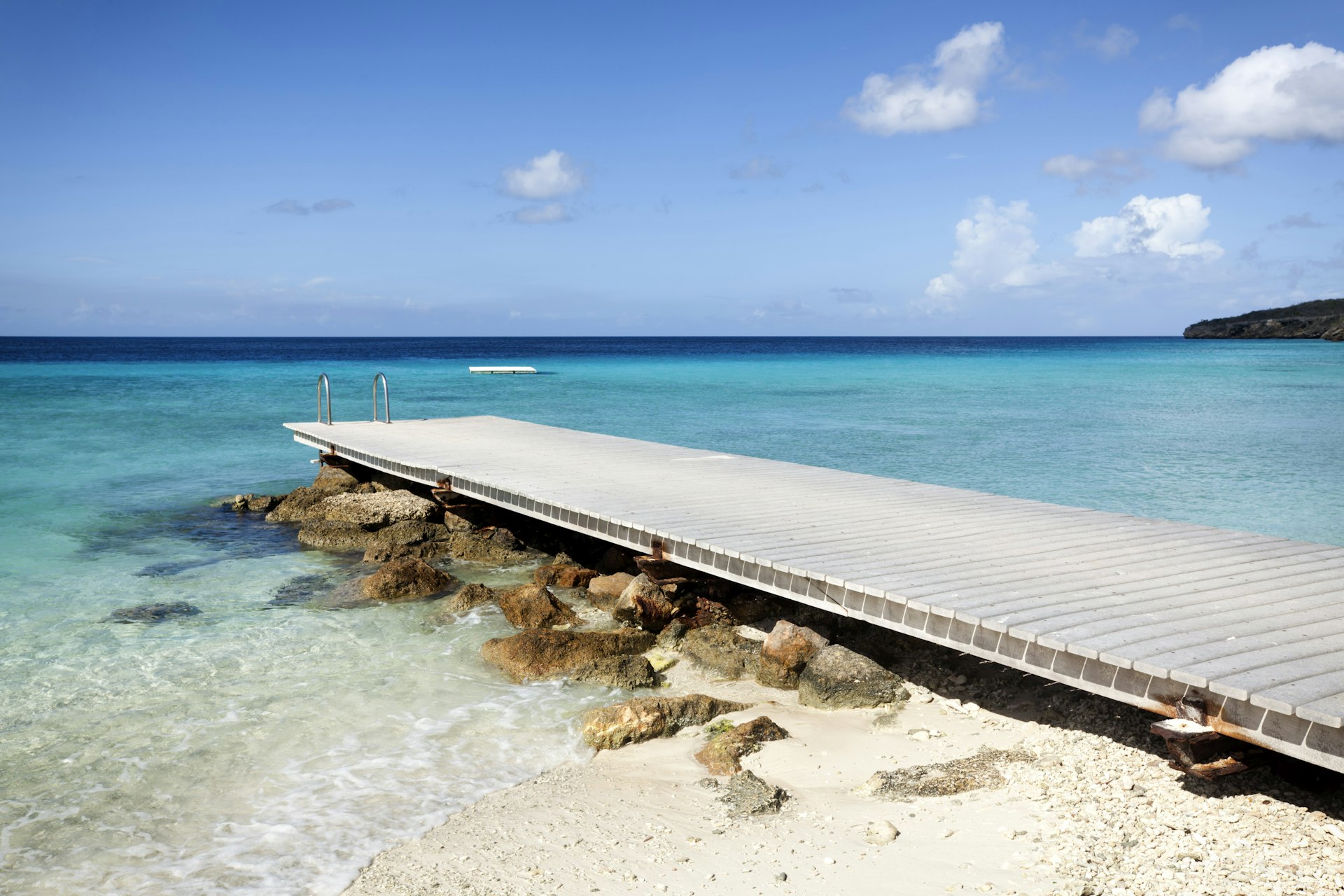
4. Curaçao's 35 beaches
While it takes less than two hours to drive Curaçao from tip to tip, it’s home to 35 beaches, each with their own individual personalities. Playa Knip , the island’s most famous beach, offers up crystal-clear waters and good amenities, while Playa Lagún is a more intimate and quirky spot, with weathered rowboats strewn across its golden sand. If you’re looking for a little more space to move around, head over to Porto Mari, a wide expanse of beach with breathtaking waters. Sit on the pier for a jealousy-inducing photo op, or grab a cold Amstel Bright at the conveniently located beach bar. Porto Mari is also a great stop for divers looks to explore the undersea treasures of Curaçao’s coast.
Want a beach experience with a dose of of luxury? Head down to the man-made coast at Jan Thiel Bay and Papagayo Beach , or if you have a little cash to burn, buy yourself a day pass to Baoase Luxury Resort – $50 will snag you a towel, cabana, snorkeling gear, kayaks, snacks and floaties, as well as access to one of the most beautiful resort coves on the island.
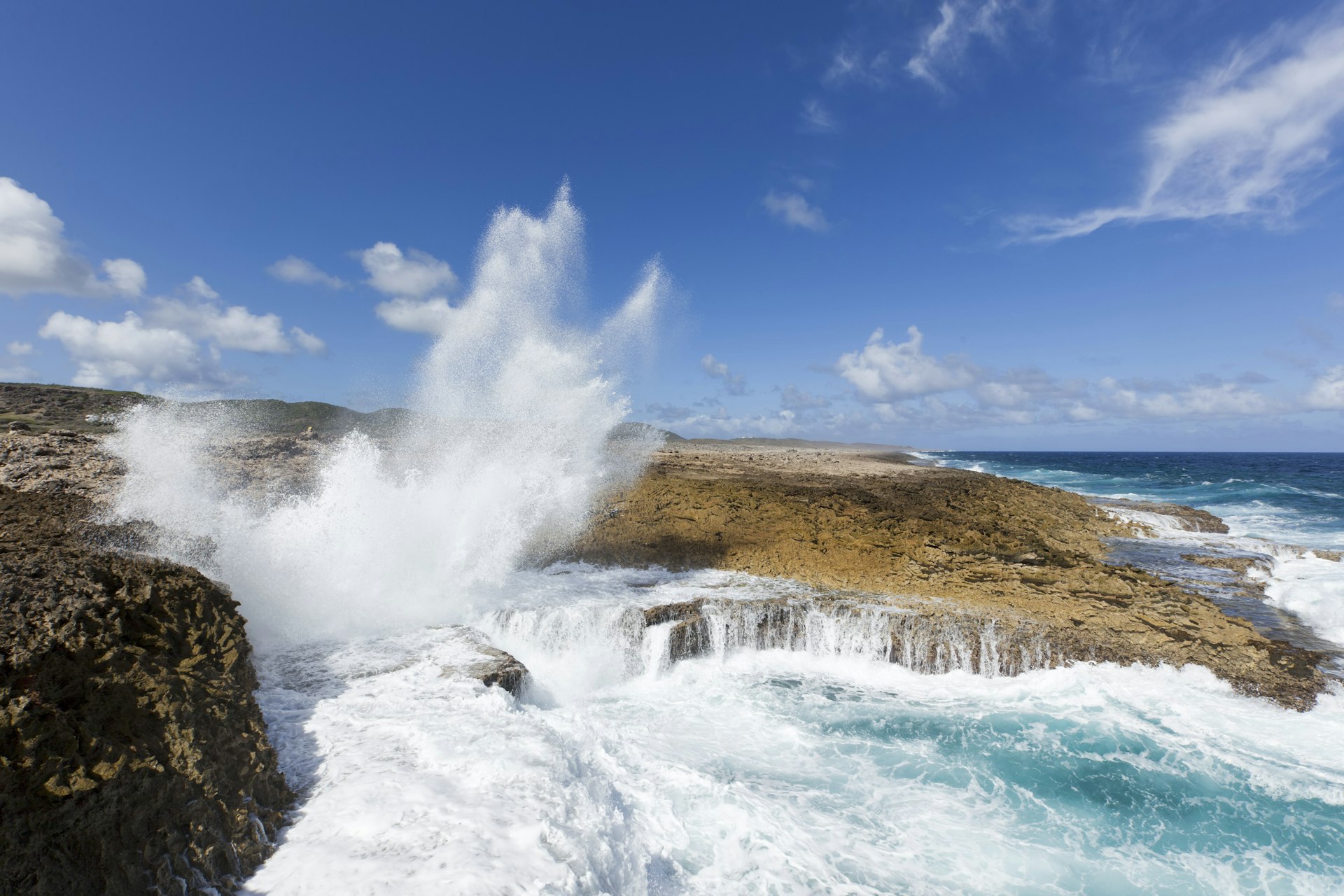
5. Christoffelpark and Shete Boka National Park
Looking for something to get the heart pumping? The island’s largest national park, Christoffelpark , is a perfect place to burn off some energy. Hike its namesake mountain and get a taste of the Curaçaoan outdoors. Eight trails varying in difficulty are available for exploration, and all can be completed without a guide. Should you want a little guidance, the park office can book a number of different informational tours, such as a pickup safari, a birdwatching excursion or a history tour.
To really get a sense of nature’s power, make the drive up to the northernmost point of the island to visit Shete Boka National Park . It’s a scene that you hear before you see. As you walk the path through the sparse volcanic landscape, a roar bounces off the rocks from a source eclipsed by the gray horizon. Walk a bit farther and the land gives way to a spectacular coastline where massive azure waves pummel the cliffs with unsettling force.
"Shete Boka" translates to "seven mouths" and refers to the series of inlets carved into the shoreline by the unrelenting waters. Visitors can stroll along a well-marked trail that hugs the coast to take in the mind-boggling views. Keep an eye out for the island’s greenest, scaliest inhabitants who live here in large numbers: iguanas.
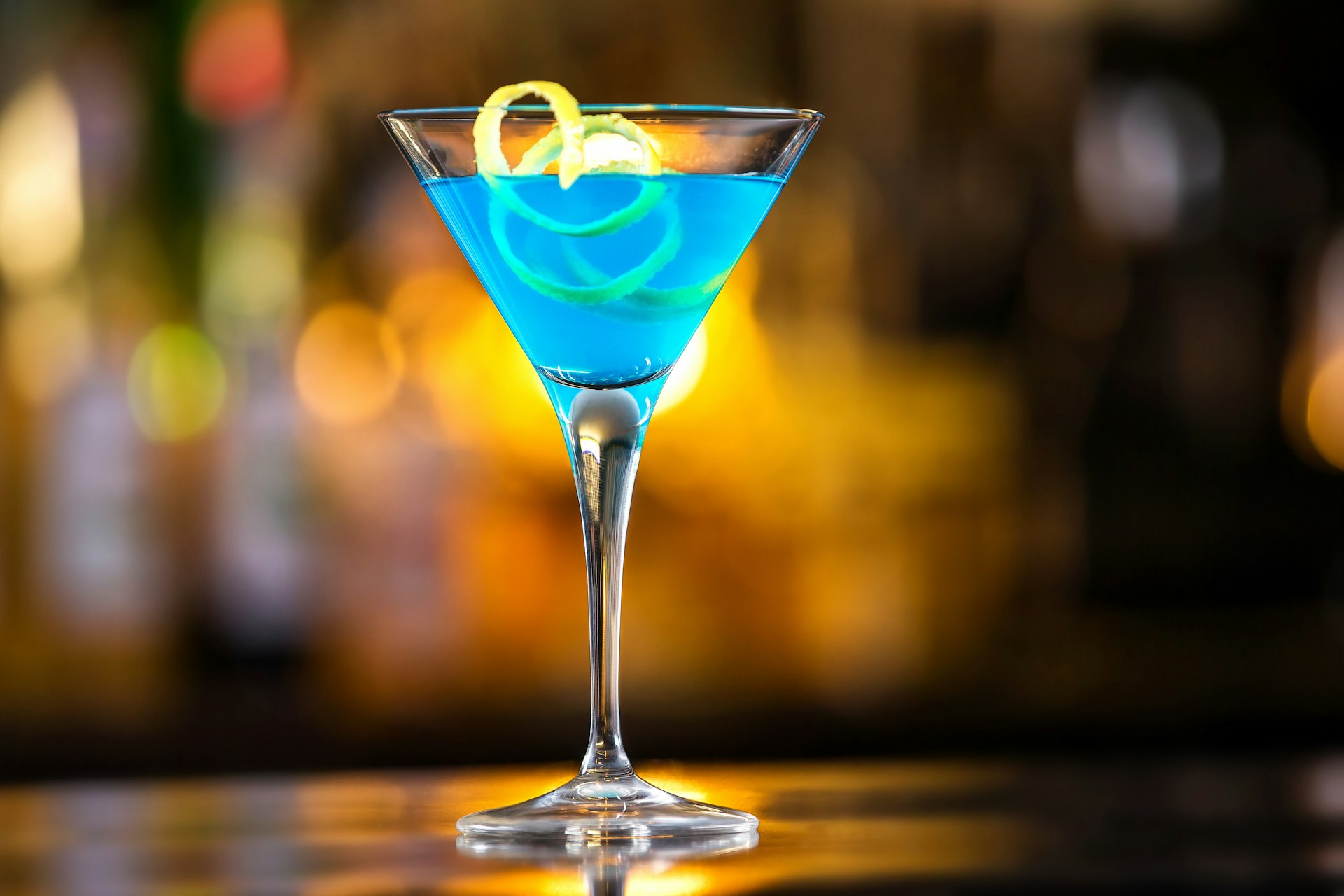
6. A hoppin' island nightlife
For all its daytime activities, Curaçao certainly doesn’t get sleepy at night. Live music fills the air every night of the week in styles ranging from jazz to pop to soca, and festive bars offer ideal havens to tip back a few drinks. One of the island’s most well-known spots for live musical entertainment is Blues, a jazz and blues bar located in Avila Beach Hotel , a property built around a historic 18th - century mansion. Should those blue cocktails kick things into high gear, head down to the Mambo Beach complex to party, or hop over to Pietermaai, where you'll find several popular watering holes. Enjoy a cocktail at the chic seaside St Tropez Ocean Club or join the street party at Mundo Bizarro .
7. An affordable Caribbean getaway
If you're looking to travel to the tropics on a budget, Curaçao is consistently ranked as one of the most affordable islands in the Caribbean. While prices do increase during high season (December to April), they reduce during the summer and fall. Plus, the island is located outside the hurricane belt, so traveling during storm season isn't as risky as it is in other parts of the region.
Bailey Freeman traveled to Curaçao with support from the Curaçao Tourist Board . Lonely Planet contributors do not accept freebies in exchange for positive coverage.
This article was originally published in October 2016.
This article was first published Oct 18, 2016 and updated Aug 11, 2021.
Explore related stories
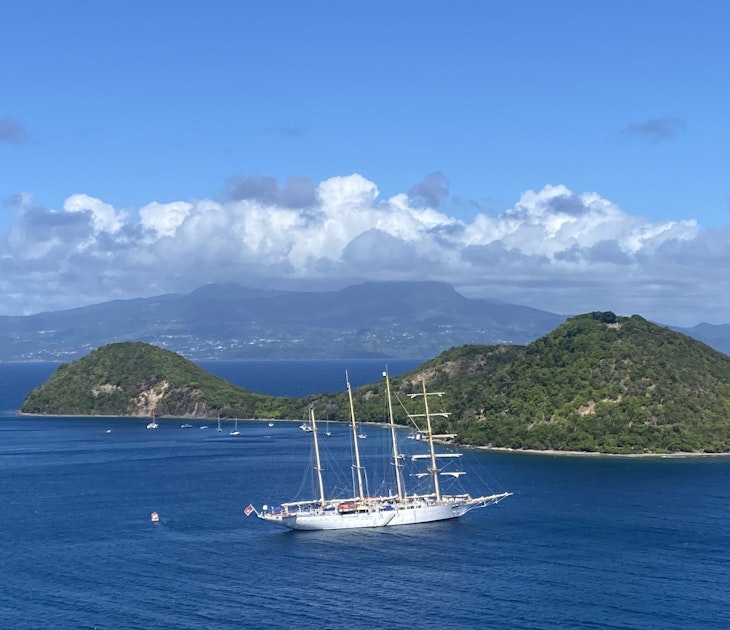
Dec 11, 2023 • 5 min read
Swimming, hiking, dancing and feeding lorikeets all over this Caribbean island.

Feb 15, 2023 • 6 min read
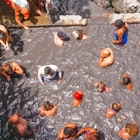
Dec 21, 2022 • 11 min read
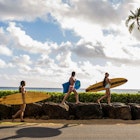
Dec 7, 2021 • 5 min read
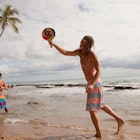
Nov 29, 2021 • 11 min read

Oct 1, 2020 • 3 min read
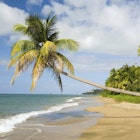
Feb 29, 2020 • 5 min read

Sep 13, 2019 • 2 min read
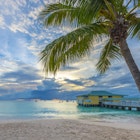
Sep 2, 2019 • 5 min read
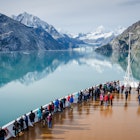
Jan 2, 2019 • 7 min read
- Destinations
Wild Junket

Curacao Travel Guide 2024: All You Need to Know
Last Updated on March 11, 2024
Planning to travel Curacao? Here is my detailed Curacao travel guide including travel requirements, cost of travel, and best places to visit.
Lying about 65km off the Venezuelan coast, Curacao is a small island that’s part of the Kingdom of the Netherlands. Yet, it’s unmistakably Caribbean with its vibrant colors, pristine beaches and rainforests studded with cacti and green iguanas.
Having spent two weeks in Curacao, I’ve compiled a Curacao travel guide for first-time travelers with recommendations on the best beaches to visit, best places to stay and eat. I hope you find this guide useful!

Table of Contents
How to Get to Curacao
Fun facts about curacao, what kind of people travel curacao, best time to visit curacao, how much time to visit curacao, by car rental, by day trip, budget: de plantage boutique hotel, mid range: landhuis klein santa martha, mid range: scuba lodge & suites, luxury: avila beach hotel, things to do in curacao, 1. see the historic center of willemstad, 2. explore pietermaai district, 3. visit the best beaches on curacao, 4. hike in the christoffel national park, 5. see wild flamingos at jan kok, traveling curacao with kids, what to eat in curacao, best places to eat in curacao, cost of travel in curacao, how to travel curacao on a budget, internet and data in curacao, language of curacao, plan your trip to curacao, curacao travel guide.
Curaçao International Airport (CUR) serves as the main gateway to Curaçao, You can fly direct to Curacao from the Netherlands and many parts of the US via KLM, TUI, American Airlines, and JetBlue.
You can get direct flights from Miami to Curacao (3hrs) from just US$360 return and from New York to Curacao (4.5 hrs) for the same price. We flew direct from Amsterdam to Curacao (10 hrs) for $570 (or €450) round trip.
Search for Flights to Curacao

Curacao (also known as Curaçao) may be in the Caribbean, but it is part of the Netherlands . It’s the biggest and most rugged of the three ABC islands — Aruba, Bonaire and Curacao.
Tracing back to its roots, Curaçao was first settled by Arawak people from South America. The first Europeans came in 1499 and the Spanish settled here, followed by the Dutch, who established it as a major centre of trade for the Dutch West India Company .
The dissolution of the Netherlands Antilles in 2010 saw Curacao become a country within the Kingdom of the Netherlands. Today it’s a stable and fairly prosperous island, with banking and tourism both big industries.

Our outdoor-loving family absolutely loved Curacao and had a great time swimming off its sugary-sand beaches, hiking in the cacti-studded mountains, and snorkeling in the spearmint waters. Curacao makes for such an easy place to kick back, relax and enjoy the tropics. Plus it’s so easily accessible from the Netherlands, and many parts of the US.
However, Curacao is not cheap and it might not be suitable for solo travelers on a tight budget. You need a car to get around and prices are comparable to the US and Western Europe. For those looking for real adventure or an off-the-beaten-path experience, this is probably not for you either. We saw mostly families and couples traveling in Curacao.

Curacao is located way south in the Lesser Antilles just 40 miles off the Venezuelan coast, which means it is safely outside of the hurricane belt. Curaçao tends to be sunny even during the months that other Caribbean islands experience torrential rains.
If you’ve come to dive or snorkel, you’ll enjoy good visibility throughout the year. Because the island is located outside the hurricane belt, its marine life is unaffected by seasonal changes.
Even though it’s great to visit all year around, the best time to visit Curaçao is from May to November , during the off-peak season. During these months, you’ll find the lowest airfares and room rates.

At just 171 square miles, Curacao is a relatively small island that’s home to 150,000 people. It takes just 50 minutes to drive from one end to the other. In other words, you don’t need a lot of time to travel Curacao.
We spent two weeks in Curacao and felt like we got to explore it thoroughly and visit every single spot we wanted to. By the end of the trip, we got to know Curacao so well that we felt like we were living on the island. If you’re limited on time, I recommend spending 1 week in Curacao to enjoy it at a relaxing pace.

How to Travel Around Curacao
The best way to get around Curacao is definitely by car rental, as public transport is few and far between. If you’re staying in Willemstad, you can generally walk everywhere. But rent a car when you want to explore outside of Willemstad.
We booked our car on Discover Cars before our trip. They’ve consistently given us the best prices and service. Car rentals in Curacao are affordable, at around US$25-30 per day. We spent around $400 for our 2-week car rental.

If you don’t drive, it’s still possible to take the local buses or small vans (similar to colectivos in Latin America) though it’ll take ages to get anywhere. An alternative is to base yourself in Willemstad and go on day tours from there. Here are some good options for day tours:
- National Treasures of Curacao Jeep Tour
- Tugboat Snorkeling Trip
- Curacao Sunset Yacht Tour
- Shete Boka National Park Jeep Tour
- Speedboat and Snorkel Adventure

Where to Stay in Curacao
The best beaches in Curacao are concentrated along the northwestern coast of the island, but that is also the most rural and rugged part of Curacao and accommodation is limited in the area.
I recommend staying in the capital city, Willemstad, where there are plenty of well-priced hotels and restaurants. The western tip is just a 30-45 minute drive away and you’ve got all the coolest cultural spots and restaurants at your doorstep. Alternatively, Jan Thiel is another great residential area within easy access from Willemstad.
We stayed at this spacious Airbnb located in Jan Thiel and found it suitable for families like ours. Only some of the apartments are renovated though — definitely ask for the ones by the pool. Check rates here.
A small, intimate boutique hotel converted from a historical plantation estate, located in the west near the best beaches in Curacao. Check rates here.
Located in Pietermaai overlooking the sea, Scuba Lodge is a stylish boutique hotel and iconic landmark in Curacao. It’s housed in one of the pastel-colored Dutch colonial buildings in Pietermaai. Our 2-bedroom apartment was huge and stylishly decorated, with sweeping views of the sea. My review will be up soon! Check rates here.
Another hotel with a great location in Willemstad, this resort has two private beaches and modern five-star hotel facilities. It’s one of the oldest historic hotels in Curacao, but all rooms have been renovated and given a fresh new look. Wait for my review. Check room rates.

Curacao has some of the best beaches I’ve ever seen. But beyond the beaches, there are also quite a lot of things to do in Curacao in terms of art walks, museum visits, and jungle hikes. Here’s a summary of the best things to do — for the full list, check out my detailed article below.
The capital city of Willemstad is perhaps the most fascinating town in the Caribbean (in our opinion). Its rich history is evident in every corner of the old town, which has been named a UNESCO World Heritage Site.
The heart of the city lies at Handelskade , a picturesque stretch of pier you’ve seen on every Curaçao postcard. 17th-century colonial Dutch buildings painted in pastel colors line the waters of St. Anna Bay. Grab a seat at Iguana Cafe and watch the Queen Emma Bridge swing open to let ships into the harbor.
From there, cross from Punda to Kura Huland Village and admire the beautiful architecture left behind by the Spanish, Portuguese and Dutch. Wander down the narrow cobblestoned alleys tucked behind Breedestraat , have a local lunch at the Plasa Bieu market , then snap a signature photo at the Wilhelminaplein’s giant Curaçao sign.

Willemstad is divided into several districts, with many of the city’s most tastefully restored buildings concentrated in Pietermaai. A full-scale revitalization effort began in 1999, and now almost all of the historic buildings have been converted into boutique hotels, restaurants, galleries and bars in this district.
From Wilhelminaplein, continue walking along Pietermaai street and you’ll start seeing buildings splashed in turquoise, pink and purple. The most photogenic ones are Scuba Lodge , BijBlauw , Ginger and the purple/orange houses at the end of Nieuwestraat.

The best beaches in Curacao lie along the northwest coast. Grote Knip is lauded by many (including myself!) as the best beach on Curacao. Before going down to the water’s edge, be sure to stop at the cliffs by the entrance to admire this postcard-perfect Caribbean image.
Just a 10-minute drive from Grote Knip is the Playa Piskado (or Kenepa Grandi), famous for the turtles that live in the area. You are almost guaranteed to see them as they feed off the scrapes that fishermen leave in the sea. The turtles are used to human beings and aren’t afraid to get close!
Playa Porto Mari is most famous for the two feral pigs that hang around here: Willy and Woody. They’re often hanging out at the beach, sniffing at your food and snooping in people’s bags. If you’re lucky, you might even see them swimming! When we were there, they were lounging in the mud and snoozing away.

Sprawling across 2300 hectares in west Curacao, Christoffel Park is the largest national park on the island. This is where you go to immerse in the lush greenery of Curacao and see unique species like the giant columnar cacti (kadushi), white-tailed deer and green iguana.
One of the absolute best things to do in Curacao is to climb the Christoffel Mountain. It takes an hour to reach the peak, just 375m above sea level. It is not allowed to start your climb after 10 am (as it gets too hot). The hike is gorgeous and rather easy — even our 5-year-old could do it with no difficulties. If you don’t drive, you can still visit on a jeep tour leaving from Willemstad . Entry: 30 ANG (US$17) per person.

While driving from the west back to Willemstad, you’ll pass through the salt lakes of Jan Kok where hundreds (sometimes thousands) of flamingos like to converge. There’s an observation deck on the edge of the salt pans where you can go to see a nice view of the flamingos without traipsing on the mud.

Curacao is an excellent place to visit with kids. It’s safe, and it has great infrastructure (besides the pot-holed roads) and plenty of nature to explore with little ones. Go hiking in Christoffel Park, see flamingos feeding on the salt lakes and visit the beaches on the west coast (most of calm and shallow).
You might not find quite as many mega attractions here as in other Caribbean islands like in Jamaica or Dominican Republic , but that’s exactly what I love about Curacao. It’s got a distinctive character and authenticity, which are evident from the colorful architecture and museums in Willemstad.
Some of the few places we recommend visiting with kids are the Curacao Children’s Museum , Curacao Sea Aquarium (outdated by staff have a strong passion for the animals) and Amazonia , a lush rainforest garden with colorful birds and cool reptiles from the Amazon.

Curacao’s vibrant culinary culture comes as no surprise, considering the island’s history. Typical dishes like Karni Stoba (stewed meat) show evidence of their Caribbean identity and Portuguese, Spanish and Dutch influences. Curacao locals have really created something special with the fusion of Caribbean ingredients and European flavors. Here are some of the most quintessential Dutch Caribbean dishes worth trying!
- Keshi yena — A signature dish of Curacao: a round ball of cheese, usually Edam or Gouda, stuffed with spiced chicken/pork and then baked until perfection.
- Karni stoba — This ubiquitous dish is a hearty stew made usually with goat meat and sometimes papaya.
- Funchi — This popular side-dish is basically cornmeal, a reminder of the African roots in Curaçao. The consistency resembles polenta, and it’s usually served fried (similar to fries).
- Arepa — A traditional Venezuelan dish, these puffy corn-based patties are hugely popular here. Curaçao has their own unique interpretation of this dish.
- Awa di Lamunchi — A refreshing Antillean drink made with freshly squeezed lime juice, sugar and water.
- Blue Curacao — A local liqueur prepared with the dried peel of the bitter orange laraha, a citrus fruit grown in Curacao.

There’s no shortage of great Creole restaurants and oceanfront seafood spots on Curacao. I was really surprised by the vibrant culinary scene as you’ll find plenty of traditional local seafood spots and trendy gourmet restaurants. Here are some of the best places to eat in Curacao:
- De Visserij — My absolute favorite place to eat in Curacao! It’s a simple, casual spot in Piscadera that serves the freshest, juiciest shrimps I’ve ever had. We waited in line for 15 mins to get in, but it was easy to see why this place is such a big hit among locals.
- Plasa Bieu Market —Definitely the cheapest place to try local Curacao dishes like Karni Stoba. It has been renovated recently, which in my opinion has taken away its authenticity.
- Brisa do Mar — An excellent seafront restaurant in Caracasbaai, great spot to try local dishes and have a Blue Curacao cocktail while watching sunset (pictured right).
- Seaside Terrace — A casual beach shack and locals’ favorite hangout, near Mambo Beach. We liked the red snapper and shrimps!
- Rozendaels — A fixture in the Curacao restaurant scene, it serves fusion Caribbean dishes in an atmospheric garden setting in Pietermaai.
- Restaurant & Café Gouverneur De Rouville — Housed in a beautiful colonial building overlooking Handelskade, this landmark restaurant has a beautiful patio and romantic ambiance. One of the best places in Willemstad!
- Jaanchies Restaurant — A local legend of some sorts, with an ultra-friendly owner and iguana on the menu in Westpunt. Get a table by the garden and observe the chirpy birds.

In general, Curacao is an expensive place to visit. It is part of the Kingdom of the Netherlands after all, and one of the wealthiest islands in the Caribbean. Living standards and prices are naturally high. We’ve found the prices similar to Amsterdam, where we live.
NOTE: Most beaches in Curacao are not public beaches i.e. there’s a fee to pay to visit each beach so these costs add up. Most charge around 6 ANG (US$3) for entrance and another 5-10 ANG ($2.5-5) for renting a beach bench.
- Accommodation — An Airbnb (pictured) costs minimum of US$70 per night, while a more upscale beachfront hotel can go for $200-400 per room.
- Food — A restaurant meal in Curacao generally costs around 40-60 ANG ($20-30) per person. Cocktails are expensive, around 15-30 ANG ($8-15). The cheaper options are food trucks (which locals are obsessed about) and arepa stands that offer meals for 10-20 ANG ($5-10).
- Supermarket — Grocery prices in Curacao are rather expensive, as they import a lot of food from the Netherlands (only fresh fruit and local produce are cheap). A pack of spaghetti costs 3 ANG ($1.50), a 1.5L bottle of water is around 3 ANG ($1.50), and a pack of fresh chicken fillet is 5 ANG ($2.50).

While it is expensive to travel Curacao, there are some ways to lower your expenses and explore on a budget. Here are some tips:
- Go to public beaches — Most beaches in Curacao are private beaches i.e. you need to pay a fee to visit each beach. Public beaches are free to visit, but there are very few and they aren’t the best beaches in Curacao. Check out Playa Forti and Playa Marie Pampoen (next to Mambo Beach).
- Eat at food trucks — Locals are obsessed with food trucks, or truk’i pan, that usually serve barbecue dishes with fries or bread in the evening. Award-winning BBQ Express is said to be the best food truck (and we agree)! Get there just before 6pm to avoid the lines.
- Stay in apartments — Apartments and Airbnbs are generally cheaper than hotels in Curacao. The cheapest areas to stay in are Willemstad and Jan Thiel. You can book an apartment with fully-equipped kitchen and swimming pool for around US$70/night.
- Cook your own meals — Shop at local supermarkets and cook instead of eating out for every meal. We made breakfast and lunch everyday and ate out for dinner. Mangusa Hypermarket is the best in town, in terms of variety and prices. Sambil mall has a Carrefour but it’s not cheap.
- Bring your gear — Pack your snorkeling mask, beach shoes, fins, sunscreen and mosquito repellant, to avoid having to buy them in Curacao.

For digital nomads who plan to work remotely in Curacao, you’ll be thrilled to know the internet speed is quite high. Most residential connections can connect at 16 Mbps , but you can go up to 26 Mbps. Free WiFi is available in many restaurants, public spaces and museums.
We worked remotely while traveling in Curacao and only lost connection for 2 hours at an Airbnb that we stayed. There was also a coworking space across the street from us, though we didn’t try it (simply worked in our apartment).
You can also easily get a SIM card. The two main telecommunications operators are Digicel and UTS (Chippie) . There is a Chippie kiosk at the airport’s baggage claim area — a SIM with 2GB of data costs US$30.

Because of their history, most people in Curacao speak at least four languages: Papiamentu, Dutch, Spanish and English . I was so impressed that everyone we met on the island was multilingual. We definitely did not encounter any issues communicating with people.
Papiamentu is the local Creole language (spoken in the Dutch Caribbean islands) that’s a fascinating mixture of Spanish, Portuguese, Dutch and African dialects. It has a large percentage of Spanish words and is quite easy to understand if you speak Spanish like we do. Here are some common words you’ll hear often:
- Bon bini! — Welcome!
- Dushi — Sweetheart (their favorite word)
- Bon dia! — Good morning!
- Danki! — Thank you!
- Con ta bai? — How are you?

Curacao is such a naturally stunning island, plus there are so many things to do in Curacao you’ll be spoiled for choice. Have a dushi time traveling in Curacao! Let me know if you have any questions in the comments field below.
Here are more articles on Curacao travel to help you plan your trip:
- 24 Fun Things to Do in Curacao
- Best Beaches in Curacao
- Staying at the Avila Beach Hotel in Curacao
- Staying at Scuba Lodge, Curacao
Disclaimer: This post contains affiliate links to companies I use and trust. I get a small commission when you click on my links, at NO EXTRA COST TO YOU.
Inspired? Pin it!

Nellie Huang
Nellie Huang is the founder of WildJunket. Originally from Singapore, Nellie has traveled to over 150 countries across 7 continents. She is a book author and Lonely Planet guidebook writer. As an adventure travel blogger, she has a special interest in unusual destinations and deep experiences. Follow her travels on her Facebook and Instagram .
Leave a Comment Cancel Comment
Save my name, email, and website in this browser for the next time I comment.
This site uses Akismet to reduce spam. Learn how your comment data is processed .
The Comments
Hi and thank you for a great travel guide to Curaçao. We are going there next week and are planning to rent a car. How was parking options in Willemstad? We live close to Queen Emma Bridge. And any supermarkets you will recommend?
hi Cassandra, it’s easy to park in Willemstad. We found lots of parking especially around the big DUSHI sign by the Cathedral. There were lots of supermarkets near where we stayed, outside of Willemstad, but if you’re staying near Queen Emma Bridge, it might be best to go to the local market where fresh fruit come from Venezuela are sold.
Do you know if you can go horseback riding tours in Curacao?
hi Tracey, yes there are three horseriding schools in Curacao, and several horseriding tours. Check out this one.
Joss Miller
What a great overview, thank you! What about a getaway over Christmas- do you see any drawbacks during this time of year? Do you have knowledge of how well set up the Air B&Bs are? Would you say the boat excursions meet safety requirements?
hi Joss, Christmas is probably peak travel season in Curacao so if you don’t like crowds it’s not the best time to go. That said, what we like about Curacao is that it’s so easy to find empty beaches and so many of the places we visited were quiet and empty. The Airbnbs we stayed at weren’t the best – you’d usually need a car to get to. I would recommend staying at hotels as they’re better designed for tourists. As for boat excursions, they’re fantastic. Curacao is rather developed for a Caribbean island.
You May Also Like
Dominican republic with kids, out and about: hiking and biking on the caribbean island of nevis, 24 cool things to do in curacao 2024.
Curacao Travel Guide

Why Go To Curacao
The "C" in the ABC islands, Curaçao features historic settlements, rugged landscapes and plenty of fun in the sun. ( Aruba and Bonaire are the other islands constituting the westernmost islands of the Leeward Antilles). Curaçao's main port city, Willemstad, is what an old-world European city would look like if it had been dropped it in the Caribbean. The brightly painted Dutch colonial buildings reflect pinks, yellows and blues into the cerulean St. Anna Bay. Once you leave the city, the landscape shifts to a desert scene, with spiny aloe and mesquite sprouting from atop weathered limestone cliffs.
But Curaçao's real draw is the beach. Picture-perfect bays and coves flank the island, their turquoise waters lapping gently against powdery white sand. Curaçao's reefs teem with marine life, providing excellent underwater playgrounds for scuba divers and snorkelers. Best of all, the semiarid island is sheltered from the worst of the Atlantic's hurricane season. Gentle trade winds keep temperatures in the mid-80s, so you can enjoy the outdoors year-round.
Find Flight and Hotel Deals
Navigate forward to interact with the calendar and select a date. Press the question mark key to get the keyboard shortcuts for changing dates.
Navigate backward to interact with the calendar and select a date. Press the question mark key to get the keyboard shortcuts for changing dates.
- # 1 in Best Cheap Caribbean Vacations
- # 7 in Best Cheap Destination Wedding Locations
- # 11 in Best Family Vacations in the Caribbean
See All 7 Rankings
Best of Curacao
Best hotels in curacao.
- # 1 in Baoase Luxury Resort
- # 2 in Curacao Marriott Beach Resort
- # 3 in Avila Beach Hotel

Best Things to Do in Curacao
- # 1 in Queen Emma Pontoon Bridge
- # 2 in Handelskade
- # 3 in Cas Abao Beach

Popular Tours

Klein Curacao Day Trip with Premium Open Bar and BBQ-Lunch
(881 reviews)
from $ 131.00

Curacao Guided Underwater Walking Tour No swimming skills needed
(431 reviews)
from $ 135.00

Beach Hopping Curacao; UTV / Buggy All Inclusive Semi Private Tour
(120 reviews)
from $ 144.15
Curacao Travel Tips
Best months to visit.
The best time to visit Curaçao is from December to April, when the island experiences the best weather. However, if you're hoping to plan a budget-friendly trip, the best time to visit Curaçao is from May to November, which constitutes the island's off-peak season. During these months, you'll find the lowest airfares and hotel rates, with rooms often priced up to 50% lower than they are in the high season (especially during summer). Plus, you won't be vying for beach chairs with throngs of other vacationers. What's more, Curaçao doesn't suffer the wrath of hurricane season. Curaçao's weather tends to be sunny even throughout the months that other Caribbean islands experience torrential rains. Only 12 degrees north of the equator, Curaçao's average temperature rests in the mid-80s all year. Most vacationers head to Curaçao between December and April, causing hotel rates and airfare to skyrocket. If you've come to dive or snorkel, you'll enjoy good visibility throughout the year. Because the island is located outside the hurricane belt, its marine life is mostly unaffected by seasonal changes.
Weather in Curacao
Data sourced from the National Climatic Data Center
What You Need to Know
No hurricanes here! Located outside of the hurricane belt, Curaçao remains warm and sunny all year – but keep an eye on the weather, just in case the odd storm may pass.
Look, don't touch Curaçao's coral reefs are gorgeous, but they are also extremely delicate. One slight graze from a human hand can have detrimental effects – plus, coral's surface can be sharper than it looks.
Dollar-friendly Although the official currency of Curaçao is the Antillean guilder, American dollars are widely accepted.
How to Save Money in Curacao
Visit in the offseason A summertime trip can save you up to 50% on hotels and flights.
Limit your taxi rides For short trips around Willemstad, taxis, bikes or Segways are a convenient option, but for longer journeys it makes more economic sense to rent a car as the cab fares are expensive.
Stick to local eateries Touristy restaurants in Willemstad tend to cater to travelers with large budgets. Peruse the places where locals eat, including the amazing canteen-style markets serving local cuisine, and dine at a fraction of the price.
Culture & Customs
Because of Curaçao's role in the slave trade, many of today's Curaçaoans identify deeply with their African heritage, as evidenced in their language and cuisine. Remnants of Dutch colonization are plainly visible as well, especially in the architecture in Willemstad and the countryside's Dutch plantation houses. Whether their ancestors came from Africa, the Netherlands or both, most of Curaçao's population speak Papiamentu, a Creole language derived from Portuguese, English, Spanish, Dutch, French as well as African and Indian dialects. English and Dutch is widely spoken throughout the island, and so is Spanish, but throwing a bon dia ("good day") or a danki ("thank you") into your daily interactions won't hurt.
A large portion of Curaçao's population is Roman Catholic, and holidays are taken very seriously. Carnival, in particular, is huge here, lasting for more than a month. If you're visiting in January or February, be prepared for colorful masquerades and loud processions through the streets. The predominance of Catholicism also means that most businesses on the island are closed on Sundays.
The Netherlands Antilles guilder (ANG) – also called the Florin – is the official currency of Curaçao. One guilder equals roughly $0.56, but U.S. dollars are widely accepted throughout the island. What's more, many ATMs dispense American tender. Dollars or guilders, most taxi drivers and waiters expect a 10% tip, but make sure to check your restaurant bill first – if you notice a 10% "service charge," then you don't need to leave additional gratuity, although a few extra dollars are always appreciated.
Crime is not a big issue in Curaçao, but you should still keep an eye on your belongings. Look after your valuables on the beach, always lock your car, and stay alert for pickpockets in urban and touristy areas.
Getting Around Curacao
The best way to get around Curaçao is by car. Some of Curaçao's hotels offer area shuttles, and the public buses cover the majority of the island, but service is infrequent, especially outside of Willemstad. If you want to explore the island on your own time, then you'll want your own set of wheels. Taxis are available from Curaçao's major airport, Curaçao International Airport (CUR), about 8 miles northwest of Willemstad. However, cabs can be expensive, especially if you are planning to use them frequently.
Check with your hotel to see if it offers an airport shuttle service. Otherwise, expect to pay at least $30 for a one-way taxi ride from the airport to Willemstad. Major airlines, such as American Airlines, JetBlue and United, service the Curaçao airport.
Entry & Exit Requirements
You will need to present a valid passport to enter and leave Curaçao, and you may be asked to show your return ticket and proof of sufficient funds, as well as proof of lodging. Upon departure to the U.S., you will be required to pay an airport departure fee of $65.74. If you are continuing on to Aruba or St. Martin , you will be charged $40.74 or $22.74 if you're going to Bonaire . Some airlines, however, include these fees in the ticket price. You'll also be asked to complete an Embarkation and Disembarkation Card (ED-Card), which will most likely be handed out on the plane ride to Curaçao. For more information, visit the U.S. State Department's website .
Although your main priority when traveling to the Caribbean may be lounging at the beach all day, don't overlook Willemstad, Curaçao's colorful capital.
Explore More of Curacao

Things To Do
Best hotels.

You might also like

# 5 in Best Family Vacations in the Caribbean

# 6 in Best Cheap Caribbean Vacations

If you make a purchase from our site, we may earn a commission. This does not affect the quality or independence of our editorial content.
Recommended
The 28 Best Water Parks in the U.S. for 2024
Holly Johnson|Timothy J. Forster May 8, 2024

The 18 Best Napa Valley Wineries to Visit in 2024
Lyn Mettler|Sharael Kolberg April 23, 2024

The 25 Best Beaches on the East Coast for 2024
Timothy J. Forster|Sharael Kolberg April 19, 2024

The 50 Best Hotels in the USA 2024
Christina Maggitas February 6, 2024

The 32 Most Famous Landmarks in the World
Gwen Pratesi|Timothy J. Forster February 1, 2024

9 Top All-Inclusive Resorts in Florida for 2024
Gwen Pratesi|Amanda Norcross January 5, 2024

24 Top All-Inclusive Resorts in the U.S. for 2024
Erin Evans January 4, 2024

26 Top Adults-Only All-Inclusive Resorts for 2024
Zach Watson December 28, 2023

Solo Vacations: The 36 Best Places to Travel Alone in 2024
Lyn Mettler|Erin Vasta December 22, 2023

26 Cheap Beach Vacations for Travelers on a Budget
Kyle McCarthy|Sharael Kolberg December 4, 2023


Global pandemic
On March 13, 2020 Curaçao registered it’s first official COVID-19 case. From that point forward, the Government of Curaçao has done and is still doing everything possible to protect our community and keep everyone on the island safe from the SARS-CoV-2 virus.
LATEST ANNOUNCEMENTS
Stay connected with us.
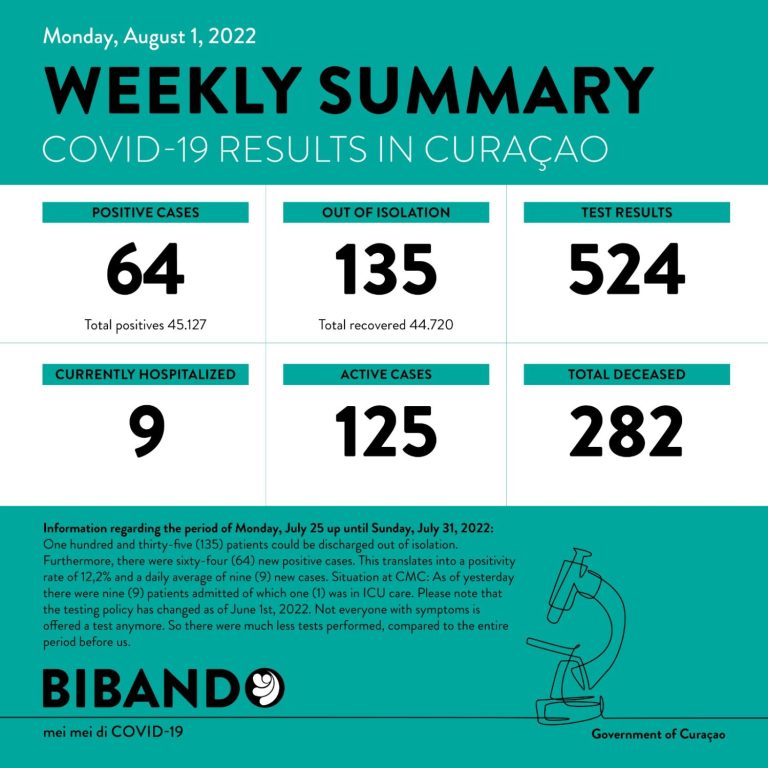
Monday August 1, 2022 – Latest Update
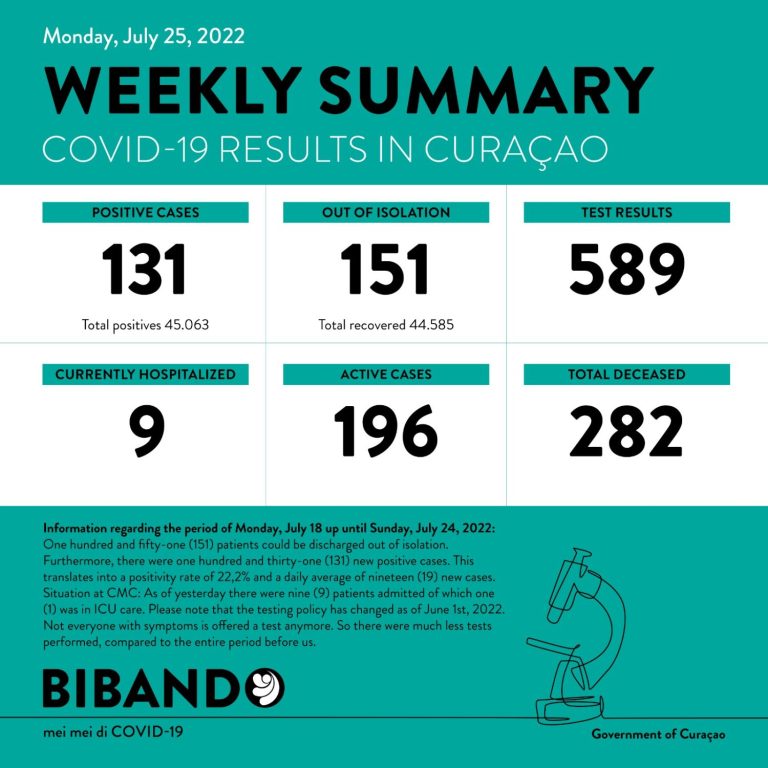
Monday July 25, 2022 – Latest Update
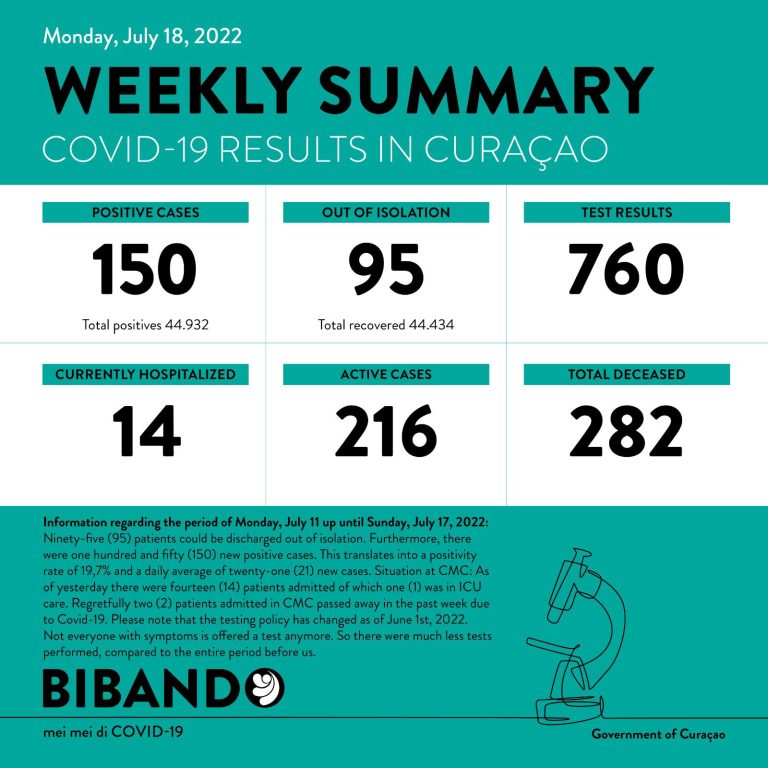
Monday July 18, 2022 – Latest Update
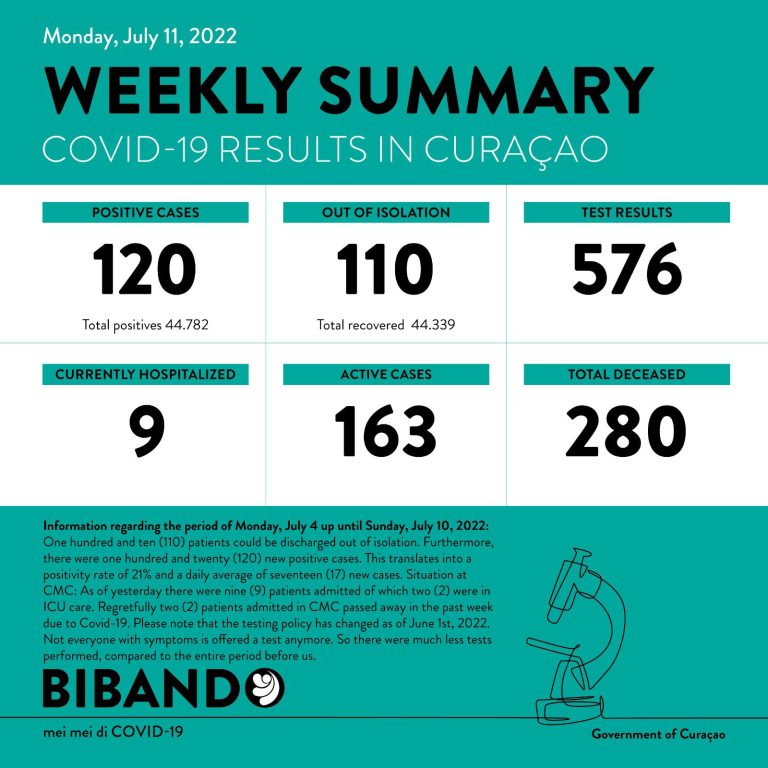
Monday July 11, 2022 – Latest Update
Be prepared and stay safe.

The Government has defined several safety protocols and recommendations for all sectors. Safety at work is highly important.
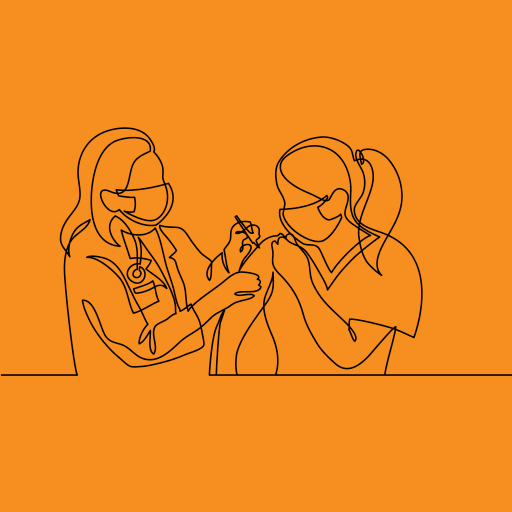
The COVID-19 vaccine is freely available for all interested residents. We are currently vaccinating at Zakito.
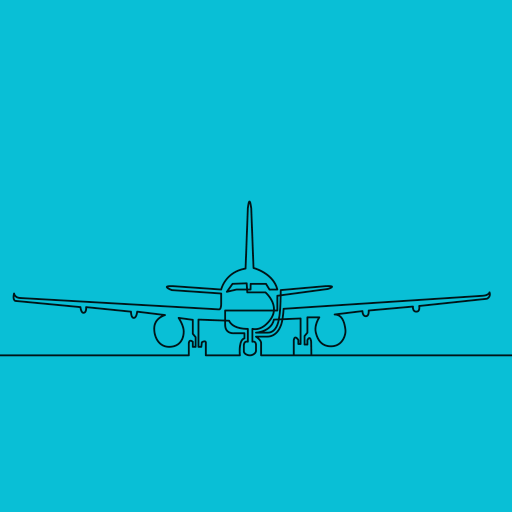
Curaçao is open for all travelers and as of Sunday, June 5 all travel measures related to COVID-19 are lifted.
Curaçao health app
Curaçao Health App is Curaçao’s digital proof of vaccination (DCC). It can be used locally, but also while traveling to EU countries and all other countries where the EU DCC is accepted. You can request your DCC as early as two weeks after being fully vaccinated.
Click here to apply for your Curaçao DCC.
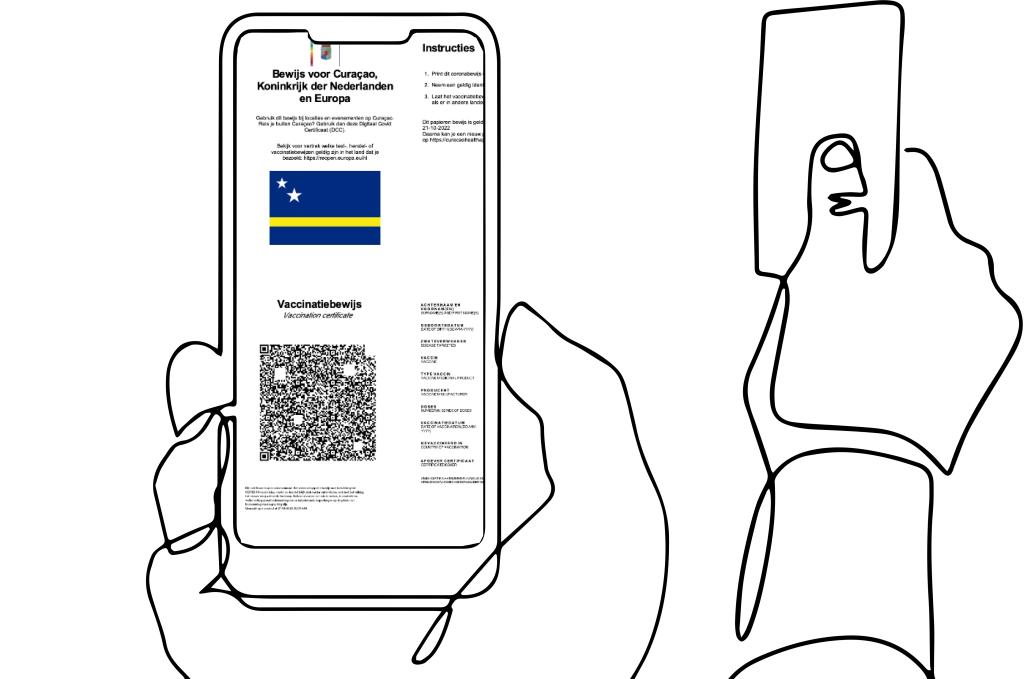
Frequently asked questions

Follow us on social
About bibando.
The brand BIBANDO has been introduced by the Government of Curaçao to cover the COVID-19 pandemic and all information related to the COVID-19 vaccine in Curaçao. The word ‘bibando’ means living in the local language Papiamentu.
© 2021 BIBANDO | Gobièrnu di Kòrsou | Privacy Policy | Cookie Policy
REGISTRÁ PA NOS BOLETIN DIGITAL
Ora bo yena bo informashon bo ta bai di akuerdo pa risibí informashon ofisial di Gobièrnu di Kòrsou via email. Si bo yena bo number di telefòn (opshonal) lo bo por risibí mensahe via Whatsapp i SMS.
Cookies on GOV.UK
We use some essential cookies to make this website work.
We’d like to set additional cookies to understand how you use GOV.UK, remember your settings and improve government services.
We also use cookies set by other sites to help us deliver content from their services.
You have accepted additional cookies. You can change your cookie settings at any time.
You have rejected additional cookies. You can change your cookie settings at any time.
Register to vote Register by 18 June to vote in the General Election on 4 July.
- Passports, travel and living abroad
- Travel abroad
- Foreign travel advice
Warnings and insurance
The Foreign, Commonwealth & Development Office ( FCDO ) provides advice about risks of travel to help British nationals make informed decisions. Find out more about FCDO travel advice .
Before you travel
No travel can be guaranteed safe. Read all the advice in this guide and see support for British nationals abroad for information about specific travel topics.
Follow and contact FCDO travel on Twitter , Facebook and Instagram . You can also sign up to get email notifications when this advice is updated.
Travel insurance
If you choose to travel, research your destinations and get appropriate travel insurance . Insurance should cover your itinerary, planned activities and expenses in an emergency.
Related content
Is this page useful.
- Yes this page is useful
- No this page is not useful
Help us improve GOV.UK
Don’t include personal or financial information like your National Insurance number or credit card details.
To help us improve GOV.UK, we’d like to know more about your visit today. Please fill in this survey (opens in a new tab) .

Never Stop EXPLORING
In Curaçao, there’s always more to experience and explore. From the incredible views to the endless list of activities, a surprise awaits around every corner.
Explore Our Experiences
- Art and Culture
- Car Rentals
- Dive Operators
- Dive- and Snorkel sites
- Food and Drink
- Land Adventures
- Nature and Parks
- Nightlife and Entertainment
- Shopping Areas
- Sights and Landmarks
- Spa and Wellness
- Sports and Golf
- Taxi Services
- Water Activities

Fashion Show - Kurá Hulanda Village

'Gewoon Roué' Stand-Up Comedy Show

Chobolobo Summer Fair 2024
Snorkeling diving curaçao provides an underwater experience that is unparalleled. the abundance and diversity of sealife is truly spectacular..
By browsing Curacao.com, you accept the use of profiling cookies from Curaçao Tourist Board and affiliated third parties. More information about cookies and Privacy Policy .
Confirm selection

- Travel, Tourism & Hospitality ›
- Leisure Travel
- Number of tourist arrivals in Curaçao 2015-2022, by type
Total number of tourist arrivals in Curaçao from 2015 to 2022, by type
Additional Information
Show sources information Show publisher information Use Ask Statista Research Service
September 2022
Netherlands, Curaçao
2015 to 2022
The release date is the date of access. Figures prior to 2021 were previously published by the source.
Other statistics on the topic
Travel, Tourism & Hospitality
- St. Maarten: number of foreign visitor arrivals 2010-2019, by type
- Distribution of tourists on Aruba 2008-2018, by country
- Inbound tourism volume to Aruba 2010-2022
- Number of tourists arriving by air to Sint Maarten in 2016, per month
- Immediate access to statistics, forecasts & reports
- Usage and publication rights
- Download in various formats
You only have access to basic statistics.
- Instant access to 1m statistics
- Download in XLS, PDF & PNG format
- Detailed references
Business Solutions including all features.
Statistics on " Travel and Tourism in the Dutch Caribbean "
- Number of inbound tourist arrivals in Curaçao 2010-2022
- Number of tourist arrivals in Curaçao 2015-2022
- Inbound tourism from Europe to Curaçao 2010-2022
- Inbound tourism from South America to Curaçao 2010-2021
- Inbound tourism from North America to Curaçao 2010-2022, by country
- Number of tourists from the Netherlands to Curaçao 2010-2022
- Volume cruise ship arrivals in Curaçao 2009-2022
- Number of tourist stopover arrivals on Aruba 2017, by airline
- Number of tourist arrivals to Aruba 2017, by country
- Overnight stays by tourists in Aruba 2010-2022
- Number of nights spent by tourists on Aruba 2017, by country
- Number of nights spent by tourists on Aruba 2017, by accommodation
- Number of hotel nights spent by tourists on Aruba 2017, by country
- Number of tourists arriving by air to Sint Maarten in 2012-2016
- Number of tourists arriving by air to Sint Maarten in 2016, by region of origin
- Number of cruise calls to Sint Maarten in 2012-2016
- Number of cruise passengers arriving to Sint Maarten in 2012-2021
- Inbound tourism by air to Saba 2012-2022
- Inbound tourism by air to Saba 2021, per month
- Inbound tourism by air to Saba 2022, by nationality
- Inbound tourism by air to St Eustatius 2012-2021
- Monthly inbound tourism by air to St. Eustatius 2021-2022
- Inbound tourism by air to St. Eustatius 2021, by nationality
Other statistics that may interest you Travel and Tourism in the Dutch Caribbean
- Basic Statistic Number of inbound tourist arrivals in Curaçao 2010-2022
- Basic Statistic Number of tourist arrivals in Curaçao 2015-2022
- Basic Statistic Number of tourist arrivals in Curaçao 2015-2022, by type
- Basic Statistic Inbound tourism from Europe to Curaçao 2010-2022
- Basic Statistic Inbound tourism from South America to Curaçao 2010-2021
- Basic Statistic Inbound tourism from North America to Curaçao 2010-2022, by country
- Basic Statistic Number of tourists from the Netherlands to Curaçao 2010-2022
- Basic Statistic Volume cruise ship arrivals in Curaçao 2009-2022
- Premium Statistic Inbound tourism volume to Aruba 2010-2022
- Premium Statistic Distribution of tourists on Aruba 2008-2018, by country
- Premium Statistic Number of tourist stopover arrivals on Aruba 2017, by airline
- Premium Statistic Number of tourist arrivals to Aruba 2017, by country
- Premium Statistic Overnight stays by tourists in Aruba 2010-2022
- Premium Statistic Number of nights spent by tourists on Aruba 2017, by country
- Premium Statistic Number of nights spent by tourists on Aruba 2017, by accommodation
- Premium Statistic Number of hotel nights spent by tourists on Aruba 2017, by country
Sint Maarten
- Premium Statistic St. Maarten: number of foreign visitor arrivals 2010-2019, by type
- Basic Statistic Number of tourists arriving by air to Sint Maarten in 2012-2016
- Basic Statistic Number of tourists arriving by air to Sint Maarten in 2016, per month
- Basic Statistic Number of tourists arriving by air to Sint Maarten in 2016, by region of origin
- Basic Statistic Number of cruise calls to Sint Maarten in 2012-2016
- Basic Statistic Number of cruise passengers arriving to Sint Maarten in 2012-2021
Saba & St. Eustatius
- Basic Statistic Inbound tourism by air to Saba 2012-2022
- Basic Statistic Inbound tourism by air to Saba 2021, per month
- Basic Statistic Inbound tourism by air to Saba 2022, by nationality
- Basic Statistic Inbound tourism by air to St Eustatius 2012-2021
- Basic Statistic Monthly inbound tourism by air to St. Eustatius 2021-2022
- Basic Statistic Inbound tourism by air to St. Eustatius 2021, by nationality
Further related statistics
- Premium Statistic Arrivals of overnight foreign tourists in China 2019, by region
- Premium Statistic Tourist arrivals from the United States of America in China 1995-2018
- Premium Statistic Arrivals of foreign tourists in China in 2009-2019, by origin
- Premium Statistic Arrivals of foreign tourists staying overnight in China 2009-2019
- Basic Statistic Visits of French tourists in London 2010-2016
- Premium Statistic Estimated impact of the coronavirus on tourist arrivals in Italy 2020, by region
- Premium Statistic Number of international tourist arrivals in Myanmar 2010-2019
- Premium Statistic Number of international tourist arrivals by air Myanmar 2010-2019
- Premium Statistic Number of international tourist arrivals by sea Myanmar 2010-2019
- Premium Statistic Number of tourist arrivals Egypt 2019-2022, by region of origin
- Premium Statistic Number of European tourists arriving in Egypt 2013-2022
- Premium Statistic Number of American tourists arriving in Egypt 2013-2022
- Premium Statistic Number of jobs generated by the cruise industry in France 2012-2017
- Premium Statistic Cruise ship arrivals in Gibraltar 2015-2018, by month
Further Content: You might find this interesting as well
- Arrivals of overnight foreign tourists in China 2019, by region
- Tourist arrivals from the United States of America in China 1995-2018
- Arrivals of foreign tourists in China in 2009-2019, by origin
- Arrivals of foreign tourists staying overnight in China 2009-2019
- Visits of French tourists in London 2010-2016
- Estimated impact of the coronavirus on tourist arrivals in Italy 2020, by region
- Number of international tourist arrivals in Myanmar 2010-2019
- Number of international tourist arrivals by air Myanmar 2010-2019
- Number of international tourist arrivals by sea Myanmar 2010-2019
- Number of tourist arrivals Egypt 2019-2022, by region of origin
- Number of European tourists arriving in Egypt 2013-2022
- Number of American tourists arriving in Egypt 2013-2022
- Number of jobs generated by the cruise industry in France 2012-2017
- Cruise ship arrivals in Gibraltar 2015-2018, by month
The Mall Firenze

Most Recent: Reviews ordered by most recent publish date in descending order.
Detailed Reviews: Reviews ordered by recency and descriptiveness of user-identified themes such as wait time, length of visit, general tips, and location information.
The Mall Firenze - All You Need to Know BEFORE You Go (2024)

The 5 Best Airlines For First Class In 2024
- Airlines are still focusing on premium products, including first class.
- Air France, Lufthansa, Etihad Airways, and Singapore Airlines have quality first class experiences.
- However, All Nippon Airways could be the best first class experience to discover in 2024.
Despite airlines shying away from first class seating during the past few years, especially before the pandemic, there has been a resurgent focus on premium products in 2023 and 2024. Demand for first, business, and premium economy class seating has driven airlines to innovate and refresh their top-of-the-line products, with several carriers introducing new first class seats and suites.
If you were to look to tick off a few bucket list-worthy first class seats to fly on in 2024, several airlines have introduced or are planning to introduce new first class cabins during the year, indicating that the crème de la crème of airline seats is not going away anytime soon.
Air France’s La Première
Announced in: may 2022.
Aircraft available on:
- Boeing 777-300ER
While the cabin is not available yet, Air France has promised that it will be during the upcoming winter season, which starts in October 2024. The carrier announced that it was redesigning its La Premiere cabin, exclusively deployed on its 777-300ERs, in May 2022.
At the time, Air France said that La Premiere would be the longest on the market, offering up to three modular configurations that can be fully privatized, including transforming the seat into a sofa or a bed. Furthermore, the carrier promised that it would appear on more aircraft than previously.
Benjamin Smith, the chief executive officer (CEO) of Air France, said that La Premiere represents the best of French excellence and is a vital part of the airline’s DNA. The executive noted that even at the peak of the pandemic, the airline saw the importance of a first class cabin, especially on routes across the Atlantic Ocean.
Pictures: Air France Teases New First Class Seat Design
Lufthansa allegris, announced in: february 2023.
- Airbus A350
- Boeing 787-9
- Boeing 777X
While Lufthansa teased the new designs of its first class cabins in October 2022, the German airline officially introduced the new Allegris cabins, including new first class seats, in February 2023. The seats will feature on Airbus A350, Boeing 787, and 777X aircraft, upon their delivery to the German airline.
At the time, Lufthansa said the new Allegris seats would be introduced with its latest Airbus A350-900 aircraft in 2024. However, two of its most recent Airbus A350-900 aircraft were straight sent to the desert, reportedly because supply chain issues derailed the airline’s plans to introduce the new cabins on the two aircraft, which is why they are now parked at Teruel Airport (TEV), Spain.
Why Lufthansa Has Flown Two Brand New Airbus A350s Straight To Storage
Nevertheless, while they might be delayed, the first class cabins will still have plenty on offer, including unprecedented privacy for the German airline’s top-of-the-line seats. For example, Lufthansa said that customers can warm or cool their seats in the suite according to their needs.
Lufthansa Pushes New Cabin Launch To 2024 Due To Delivery Delays
Etihad airways the residence, announced in: may 2014.
- Airbus A380
While ‘The Residence’ is not a new product, the fact is that with the return of the airline’s Airbus A380 aircraft, passengers once again can enjoy ‘The Residence,’ an even more luxurious cabin than first class on the UAE-based Etihad Airways flights.
The one new development with the self-advertised three-room suite in the sky is that starting April 2024, the airline will deploy its Airbus A380 aircraft to fly between Abu Dhabi Zayed International Airport (AUH) and New York John F. Kennedy International Airport (JFK). When the aircraft returned to service in July 2023, the airline deployed it only on the AUH – London Heathrow Airport (LHR) route.
A380 Return: The Fleet Of Etihad Airways In 2024
Singapore airlines first class, announced in: july 2013.
While it has been more than a decade since Singapore Airlines first unveiled its newest first class product, the cabin still has been one of the top-rated cabins globally as the airline has managed to provide an unparalleled experience to its customers.
Unfortunately, the carrier’s Boeing 777-300ER only welcomes four first class passengers since its other long-haul aircraft, including the Airbus A350-900, A350-1000, A380, and Boeing 787-10, only have business class seats. The only exception is the Airbus A380, with the airline offering the ‘Suite’: a similar experience to Etihad Airways ‘The Residence.’ When Singapore Airlines announced the cabin in July 2013, it said that the seat would introduce a new industry benchmark for premium air travel, including redesigning its business and economy class seats.
5 Reasons Flying Singapore Airlines Is Worth It
All nippon airways the suite, announced in: july 2019.
All Nippon Airways (ANA) announced its new first class seats in July 2019 . The airline, which also publicized its newest business class seat on the same date, described the then-new suite as designed by combining Japanese heritage and Western design.
While Skytrax rated Singapore Airlines’ first class as the superior product in 2023, maybe ANA, whose first class was ranked as the third-best seat in the world, will have what it takes to take it to the next level. After all, Air Frances’s La Premiere, voted second-best, is getting a refresh, which could go either way and provide a potential opportunity for ANA.
The Japanese carrier offers its first class product on two aircraft, its iconic ‘Flying Turtles,’ the Airbus A380s, and the Boeing 777-300ER. When it introduced the new suites, ANA said that this was the most spacious fully enclosed seating ever seen on an ANA aircraft, adding that features include privacy-enhancing doors and a 43-inch monitor, which also showed entertainment in a 4K resolution.
Which US Airlines Still Have First Class In 2024?
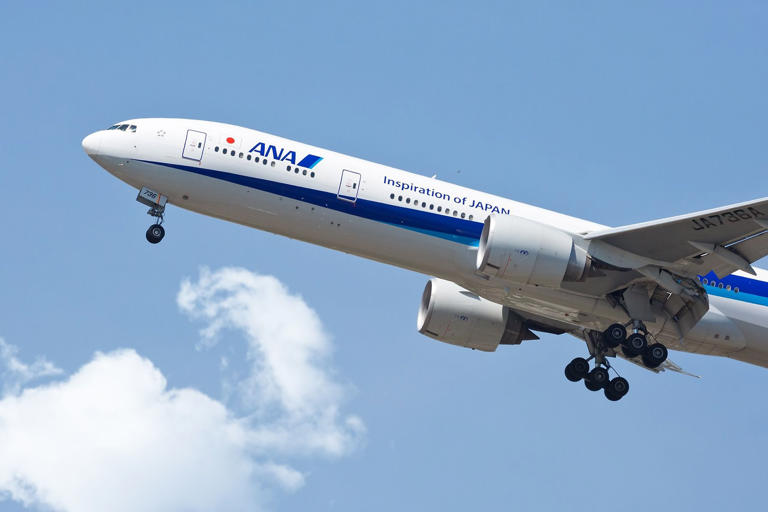

COMMENTS
As of June 5, 2022, there are no Covid-19 related measures in place for inbound travelers. Anyone who presents COVID-19 related symptoms or has tested positive, is advised to maintain an isolation period of a minimum of 5 days and a maximum of 10 days. If symptoms persist or if your condition worsens, please contact your General Practitioner (GP).
Reissued with obsolete COVID-19 page links removed. Exercise normal precautions in Curaçao. Read the country information page for additional information on travel to Curaçao.. If you decide to travel to Curacao: Enroll in the Smart Traveler Enrollment Program (STEP) to receive Alerts and make it easier to locate you in an emergency.; Follow the Department of State on Facebook and Twitter.
Find continuously updated travel restrictions for Curaçao such as border, vaccination, COVID-19 testing, and quarantine requirements.
For additional travel information. Enroll in the Smart Traveler Enrollment Program (STEP) to receive security messages and make it easier to locate you in an emergency. Call us in Washington, D.C. at 1-888-407-4747 (toll-free in the United States and Canada) or 1-202-501-4444 (from all other countries) from 8:00 a.m. to 8:00 p.m., Eastern ...
If you prefer to relax at a resort, take note of the latest Curaçao resort. Sandals Royal Curaçao opens in April 2022. Enclaved on 3000 acres, Royal Curaçao is a romantic paradise with 350 rooms and suites. The resort also has the first Awa Seaside Bungalow and if you want to take pool photos for your Instagram, then opt for one of the ...
Every visitor must also undergo an antigen test at a local laboratory on-island on the third day of their trip. Children under 12 who don't show symptoms of Covid do not need to undergo a test ...
Reduce your risk of colds, the flu and other illnesses by: washing your hands often. avoiding or limiting the amount of time spent in closed spaces, crowded places, or at large-scale events (concerts, sporting events, rallies) avoiding close physical contact with people who may be showing symptoms of illness.
COVID-19 Health Requirements While in Curaçao. There is a curfew on the island between 3AM and 4:30AM. Whilst mask wearing is not compulsory (apart from at airports), travelers are asked to use a face mask if unable to keep their distance in public. There is also the recommendation to practice frequent hand washing and maintain a distance of ...
Curaçao Removes Most Travel Restrictions. Image: Travelers to Curaçao are no longer required to provide Covid entry test results. (Photo by Brian Major) by Brian Major. Last updated: 4:56 PM ET, Wed March 9, 2022. Effective March 10, Curaçao will no longer require visitors to provide proof of a negative COVID-19 test to enter the country ...
Paul Pennicook, CEO of the Curacao Tourist Board Credit: 2021 Curacao Tourist Board. What are some of the new hotel projects in Curacao that travel advisors should know about? There are many new and exciting developments in Curacao, but the biggest announcement is the planned opening of the first Sandals on-island — the Sandals Royal Curacao, set to open in April 2022. The stunning property ...
For more information, about travel requirements and things to do while on the island, go to curacao.com. If you have questions regarding the Digital Immigration Card, please visit our FAQ section. In the case we are unable to find an answer to your question, please contact us at [email protected]
Curaçao Travel Costs. Hostel prices - A bed in a 4-6-bed dorm costs 45-55 ANG per night. A dorm with 8 beds or more isn't much cheaper, costing about 40 ANG per night. Private rooms cost about 95-100 ANG per night for singles and 120 ANG for doubles.
Dengue in the Americas May 16, 2024 Dengue is a risk in many parts of Central and South America, Mexico, and the Caribbean. Some countries are reporting increased numbers of cases of the disease. Travelers to the Americas can protect themselves by preventing mosquito bites. Destination List: Argentina, Brazil, Colombia, Costa Rica, Curaçao ...
7. An affordable Caribbean getaway. If you're looking to travel to the tropics on a budget, Curaçao is consistently ranked as one of the most affordable islands in the Caribbean. While prices do increase during high season (December to April), they reduce during the summer and fall.
Accommodation — An Airbnb (pictured) costs minimum of US$70 per night, while a more upscale beachfront hotel can go for $200-400 per room. Food — A restaurant meal in Curacao generally costs around 40-60 ANG ($20-30) per person. Cocktails are expensive, around 15-30 ANG ($8-15).
Entry & Exit Requirements. You will need to present a valid passport to enter and leave Curaçao, and you may be asked to show your return ticket and proof of sufficient funds, as well as proof of ...
August 1, 2022 Monday July 25, 2022 - Latest Update July 25, 2022 Monday July 18, 2022 - Latest Update July 18, 2022 Monday July 11, 2022 - Latest Update July 11, 2022 All Updates. BE PREPARED AND STAY SAFE. Protect yourselF & others ... June 5 all travel measures related to COVID-19 are lifted.
Still current at: 1 June 2024 Updated: 14 November 2023 Latest update: This travel advice has been rewritten to make it easier to read and understand.
Chobolobo Summer Fair 2024. Find the best things to do in Curacao and start planning your trip to the island. In curacao, there's always more to explore. So take it all in - there's a surprise around every corner.
The Top 20 Most Powerful Travel Agencies in 2023. Patrick Clarke. Agents. ... while the Mangrove Beach Corendon Curacao All-Inclusive Resort launched in September 2021 and the Wyndham-branded Kunuku Aqua Resort opened in 2020. Through December of 2022, Curaçao hosted 44,923 overnight arrivals, representing "a 101 percent recovery rate ...
We want to ensure you have the best experience with us so we'll keep working on your itinerary until perfect. You will have your own personal dedicated member of our team who will help build the perfect trip for you. Call our travel experts on +44 (0)20 7157 1570. Enquire.
Despite the significant annual increase, the volume of tourists remained below pre-pandemic levels, reaching just over one million in 2022. That year, cruise travelers accounted for the highest ...
The average cost of travel insurance is 5% to 6% of your trip costs, according to Forbes Advisor's analysis of travel insurance rates. For a $5,000 trip, the average travel insurance cost is ...
The 2022 St. Kitts Music Festival fit the bill. During the day I explored the island's fortresses, rainforests, and beachside lounging, while at night into the wee hours (Caribbean festivals go ...
Passengers can't access them under any circumstance and they're well hidden from view. They're called Crew Rest Compartments and their location on the plane varies. On newer aircraft, such ...
If you cancel your trip for a reason that's not listed in your travel insurance policy, you would be out $2,000 without CFAR insurance. But a CFAR policy would reimburse you for a portion of the ...
The World Tourism and Travel Council has reported that the T&T sector contributed 9.1% to the global GDP in 2023, an increase of 23.2% from 2022 and only 1.4% below the pre-pandemic levels of 2019
Private Transfer from Florence to Rome with 3 hours stop in The Mall Lux Outlet. Fashion Tours. from. $609.72. per adult (price varies by group size) THE MALL Reggello Private Shopping Tour from Florence. 3. Shopping Tours. from.
Unfortunately, the carrier's Boeing 777-300ER only welcomes four first class passengers since its other long-haul aircraft, including the Airbus A350-900, A350-1000, A380, and Boeing 787-10 ...